#make elaborate patterns and structures
Explore tagged Tumblr posts
Text
play you like a game, boy • jeon jungkook.
chapter 4/8

genre: antagonist tribe leader jk x princess reader
word count: 4.9k
previous chapter 3 link
synopsis: the blessed leader of forest tribe "lav" jeon jungkook wants you and will do anything and everything to make you his wife. he’s blessed by the goddess, even a leaf cannot move without his permission but he worships the ground you walk on. now, there are two paths presented to you; marry him & return his love or refuse and watch him conquer your father's kingdom. power is like an evil yet a tempting apple and now its in your hands. are you going to take a bite; taste the sweet poison or will you use it to tempt him? its an evil world with evil options.. do you think you can handle him?
warnings: smut !!!! obsessive behaviour, power imbalance, emotional manipulation, yn visits a harem, slight objectification, jealousy, emotional distress, forced marriage, mention of a knife, possessiveness, manipulation, lowkey toxic, emotional vulnerability.. pheww let me know if i missed anything !
—————————
You’re back in your chambers, still reeling from the events that just unfolded. Jungkook left immediately after, citing tasks that needed his attention. Now, sitting on the edge of your bed, you’re lost in thought, your mind fixated on the woman by the lake. The image of her lingers, but you force yourself to shake it off, to focus on something else.
Rising from the bed, you decide to take a bath, Afterward, you reach for a dress. It's simple, nothing like the elaborate corseted gowns and heavy silks you’re used to. The fabric is soft, unadorned, and unpretentious. It’s the kind of dress you’d never dare to wear at home, but you’re not home anymore, are you? With your hair still damp, you slip into the dress and step out of the room. The weight of the palace seems to press down on you once again.
As you walk, the moon is already visible, casting its silvery glow over the path. It’s not yet night, but the sky is deepening with the approaching dusk. The long hallway is dimly lit by hanging lamps, their soft light flickering like stars caught in the grandness of the palace. You pause for a moment, glancing out over the garden. The fountains shimmer, water cascading in soft, rhythmic patterns, the only sound in the stillness. It’s eerily quiet; too quiet. You don’t hear footsteps, voices, or the usual hum of activity. As you walk, you come to a stop, your eyes catching sight of a gathering ahead. A group of people sit around a fire, speaking softly, perhaps eating. On the opposite side, you spot a building that isn’t attached to the main palace. It’s unlike any other structure in the palace complex, and a sense of curiosity tugs at you.
Your feet move before you can stop them, leading you toward the building. As you cross the threshold, you immediately feel the change in the atmosphere. The air is different here- heavy with a quiet sort of tension. The space is adorned with dim lamps, their glow casting long shadows along the walls. Roses, jasmine, and countless other flowers fill the air with a sweet, intoxicating fragrance.
In the center of the courtyard, a large fountain splashes gently, the sound soothing, like a heartbeat. Some women sit along the edge, their gazes distant as they relax in the soft glow of the lamps. Some linger by the doorways, leaning against the frames with an air of nonchalance, their expressions unreadable.
As you look around, your attention is drawn to them. They are striking and exotic; dressed in sultry clothing that clings to their forms, sparkling with jewelry, and veiled in a way that only accentuates their beauty. Most of them have long, dark hair, cascading like silk over their shoulders, their faces glowing with a quiet allure. They don’t seem to acknowledge you at first, but you can feel their eyes on you. Some look you up and down, their gazes lingering with an intensity that’s hard to ignore. Whispers stir in the air, soft murmurs that you can’t quite catch.
One of the women finally stands and walks toward you. Her movements are fluid, graceful, and she bows when she reaches you. “Princess, how can I help you?” she asks, her voice soft, almost melodic.
You raise an eyebrow. It’s the first time anyone has addressed you as "Princess" instead of the usual “Mother.” The title feels strange to your ears, but not unwelcome.
You study her as she stands. Her dark hair falls in waves around her face, her doe-like eyes framed by sharp, striking features.
“What is this place?” you ask, your voice steady, betraying none of the unease that stirs in your chest.
“It is a harem,” she replies, offering a warm smile.
Your eyebrows raise automatically at the word. The harem. The term is not unfamiliar, but seeing it with your own eyes... it’s different. You scan the place again, taking in the women, the soft lamplight, the scent of flowers. You suddenly feel the weight of the world on your shoulders, as if you’ve walked into a space that’s both beautiful and dangerous. Your gaze shifts between the women, their eyes fleetingly meeting yours before they turn away. It’s clear they know who you are- the princess, the mother, the wife to the most powerful man—but it doesn’t stop the intrigue in their eyes.
The woman who addressed you stands still, waiting for your next words, a subtle smile playing at the corners of her lips. You notice how her posture is perfect, poised in a way that almost feels practiced, as if the very art of being watched is second nature to her.
"A harem," you repeat, more to yourself than to her.
"Are you happy here?" you ask, surprising yourself with the question. It’s not something you had intended to ask, but it slips out nonetheless.
The woman before you—her name still a mystery—seems to consider it for a moment. Her eyes soften, and she gives you a gentle nod. "It is not a life for all, but for some, it is paradise." You raise an eyebrow at her choice of words. Paradise? You try to picture it—the luxury, the beauty, the gifts and wonder if it truly could feel like paradise. But something in the back of your mind whispers that this is not a place of freedom, not a place of love, but something else entirely.
You open your mouth to speak, but just then, a slight movement catches your attention from the corner of the room; a woman walking toward you, her body language confident, but with a subtle sense of purpose. She moves gracefully, like she’s accustomed to the quiet reverence she commands. As she approaches, you take a step back instinctively, your posture shifting into something more guarded. She stops before you, her gaze unwavering. There is something cold and calculating in the way she observes you, but it is quickly replaced by a tight smile.
"Ah, the new bride of the leader," she says, her voice smooth, almost too smooth. "How fortunate you are to have captured his heart. Not all of us are so lucky."
Her words sting more than they should. The woman’s smile widens as she watches your reaction, like she’s testing you, waiting for a crack in your composure. The silence between you thickens.
You decide to head back to your chambers, As you turn to walk back toward the entrance, the woman who had first greeted you watches you with a mixture of curiosity and something you can’t quite place. You don’t bother turning back to her, though; you feel the eyes of every woman in the place following you as you leave.
As you turn to leave, something suddenly clicks in your mind. "Not all of us are lucky?" The phrase echoes in your head, and a surge of suspicion floods you. Could Jungkook have been here? The realization sinks in with a cold, sharp edge. The idea of him, your husband, being with other women, sleeping with them after he’s made all those declarations of love to you—it makes your blood boil.
You can feel the pulse in your temples as you quickly turn around to face the woman who greeted you earlier. She's still standing there, watching you with her calm, knowing eyes.
"What’s your name?" you ask, your voice steady but laced with an underlying edge of coldness.
"May," she replies softly, her voice almost a whisper in the heavy silence.
The name lingers in the air, but it’s not enough. “Has Jungkook been here?” You ask, your tone sharper this time. “Has he spent time in this place?” The question hangs between you, charged with emotion.
May gulps, clearly uncomfortable with the question. You can see the hesitation in her posture, her eyes flickering downward before she slowly looks back up at you.
"Why don’t you come inside and we can talk?" she suggests.
You need answers, and you won't leave without them. Without another word, she turns and leads you further into the building.
—-------------------------------------------------
The space is lavishly decorated, far more extravagant than you could have imagined—a large, open room adorned with rich tapestries, turkish carpets, gold accents, and plush cushions. Incense burns in the corners, the scent mingling with the delicate perfume of flowers that seem to fill every corner. Soft, dim lamps illuminate the space, casting long shadows along the walls. A large bed sits in the center of the room, draped in rich, embroidered fabrics.
You see them—the women. Seven in total, including May. They are seated around the room, some reclining, others standing idly by the walls. Each of them is stunningly beautiful, their clothing revealing much, yet leaving something to the imagination. Their skin is soft and radiant under the flickering lights, and their long black hair cascades in smooth waves over their shoulders. They all seem so confident, almost serene in their beauty.
One of the women steps forward, her voice smooth as she speaks with practiced grace. "We are concubines for Jungkook, my name is Juliette," she says simply, the words out in the open, like a confession.
The revelation feels like a punch to your chest. Concubines. Your mind struggles to reconcile the man you married with the reality unfolding in front of you. Your pulse quickens, and a familiar heat rises to your cheeks- anger, jealousy, betrayal. It boils beneath your skin, but you bite your tongue, trying to keep control.
Before you can react, Juliette speaks quickly, almost as if she’s afraid of your reaction. "But Jungkook has never stepped foot in this place," she adds, her voice tinged with a sense of urgency. "He’s never slept with any of us."
You blink in disbelief, the anger still seething inside you but now mixed with confusion. Now, May speaks up, her voice softer, almost apologetic. "It’s a tradition of the tribe. The leader and his officials take concubines to relieve their frustrations. When Jungkook became the leader, it was simply... expected." She hesitates, clearly uncomfortable with her words. "He was assigned to us, as part of his role."
Before you can respond, the other women begin to introduce themselves, one by one. Each of them gives you a name, a polite smile, but there’s something empty in their eyes. "We’re from the desert," one of them says when you ask where they are from. "From a distant tribe, far from here." The admission stuns you. You’ve heard of tribes from the desert—wild, isolated communities that follow their own rules, their own traditions—but never thought it would have anything to do with Jungkook’s tribe.
One of the women- sofiya- leans forward and holds your hand, "We all knew about you. We knew Jungkook was going to marry you." She smiles faintly, but there’s a sadness to it. "He fell in love with you the moment he saw you."
Another woman steps in, her tone calm and measured, almost sympathetic. "Jungkook asked your father for your hand in marriage many times." She pauses, letting the words settle in the space between you. "Every time, your father refused him. He called him a barbarian, said that he would never marry his daughter—an educated beautiful woman—to a tribe leader. Your father made it clear that Jungkook would never be worthy of you."
May speaks up, her voice tinged with respect. "Jungkook was determined to prove himself to you. He studied, learned multiple languages, trained himself in the ways of your kingdom. He even gave up the traditional leather clothing of his tribe and started wearing finer silks and furs, all to blend in with your world. He did everything he could to prove that he was worthy of you."
You want to speak, to challenge these words, but your throat feels tight, as though you can’t find the right words.
"He tried again, Jungkook went to your father once more. He asked for your hand, but your father refused again. So Jungkook chose another way to marry you."
The silence that follows is heavy, filled with the weight of those words. You’re too stunned to respond.
Then another woman’s voice- maya- cuts through the quiet. "Jungkook knew about the many kings and princes who sought you. He had connections in far-off places, and whenever a king sent a proposal, Jungkook would visit their kingdom. Sometimes he paid them off, other times he used his influence to threaten them, ensuring they wouldn’t marry you. He couldn’t bear the thought of anyone else having you."
The final pieces of the puzzle fall into place. Jungkook, for all his charm and charisma, was driven by a relentless, obsessive love for you. He sacrificed so much to win your father’s approval, to be worthy of you. And all the while, he fought to protect you from suitors, from the world, from the politics that surrounded you.
The weight of the information is too much to bear. It’s like an avalanche, each word stacking on top of the other, burying you under the overwhelming truth. The air feels thick with everything you’ve learned, and your chest tightens with a mix of confusion, betrayal, and hurt. You can barely process it all.
Without thinking, your feet move on their own, guiding you toward the door. You don’t want to stay here any longer. The silence that follows the women’s revelations is suffocating, heavy with too many unspoken things. As if the room itself is pressing down on you, suffocating you in its opulence and secrets.
—--------------------------------
You finally reach your door, your hand shaking as you push it open. The familiar sight of your chamber greets you, but something—someone—immediately catches your attention. Jungkook is sitting on the edge of the bed. The sight of him is jarring, his usual attire replaced by a simple cotton tunic and pants. He immediately sets aside the parchment he had been writing on, his hands shaking slightly as he stands. His expression softens, his eyes wide with something unreadable, but as soon as you make eye contact, his lips part, and he asks in a voice thick with something deeper than just concern.
"Where were you, my love?" The words are whispered as if they hold more weight than the world itself, and his gaze locks onto yours with an intensity that makes your breath catch.
You feel your heart beat faster in your chest, as if it’s trying to escape. You swallow, trying to steady yourself. The words come out before you can stop them, filled with a frustration you’ve been holding in for far too long.
"I went to the harem. I spoke to the concubines." The words taste bitter as they leave your lips, and you can't stop them. "They told me everything. About you. How long have you known about me? Tell me everything, and I want the truth, Jungkook”.
the look on Jungkook's face shifts. He doesn’t look angry or defensive. He looks... hurt. "I didn’t want you to find out like this," he says, his voice barely above a whisper, thick with regret. But then he takes a deep breath, his eyes searching yours as if he’s trying to find a way to make it right.
"I was there," Jungkook says, his voice cracking ever so slightly. "I was in disguise the first time I saw you. It was at a spring festival in your kingdom. I saw you from afar... standing on the balcony, waving at the crowd. You were like a vision, like something from a dream. You were so radiant. So beautiful. I couldn’t take my eyes off you." He takes a step closer, and this time, you don’t pull away. His eyes are filled with something indescribable; longing, tenderness, and something so raw it’s almost painful to witness.
"You were unlike anyone I had ever seen. I knew right then I knew I had to have you. But not just as my wife. No. I needed you as my everything, you were something I could never dream of being worthy of." His voice is trembling now, the words spilling from him as if he can no longer keep them inside. "I would have given up anything to have you in my life. To have you beside me." He reaches for your hand, his fingers trembling as they clasp around yours, pulling you closer.
He steps closer still, his chest brushing against yours, and you can feel the weight of his emotions surrounding you, enveloping you in a warmth that is both comforting and overwhelming.
"I fell in love with you at that moment," he whispers, his voice barely audible, as if confessing a secret he’s kept hidden for years. "And I spent years trying to be someone worthy of you." His breath hitches, and you see something shimmering in his eyes—a tear. It catches in the light, and for a moment, you’re unsure if it’s a reflection of your own emotions or his.
His eyes flutter closed for a moment, and when they open again, there is a rawness to them—an openness that takes you by surprise. His voice cracks as he continues, each word carrying the weight of years of longing. "I gave up my old ways, I shed everything I was just to stand in front of you. Just to be worthy of even a glance from you, You are my world. I would tear apart empires, break mountains, and drown in oceans just to be close to you. No other woman- no other woman could ever compare to you”.
You feel your own breath catch as his hands gently caress your face, as if afraid to break the fragile connection between you. His eyes never leave yours, as if he’s memorizing every detail of your face. He leans in slightly, his lips brushing yours with a tender passionate kiss that feels like a promise.
"And even now," he murmurs, his voice breaking, "I would give up everything for you." The tears in his eyes are no longer a subtle shimmer—they’re there, clear as day, rolling down his cheeks, betraying the depth of his feelings. He wipes them away quickly, but it’s no use. They keep falling, like a dam that’s been broken.
"I worship you," he says, his voice desperate, almost a plea. "I love you more than I can say. You are everything to me. I would burn kingdoms to the ground just to see you smile, you are everything to me. My heart, my soul, my love.”
His voice shakes now, and the vulnerability in it breaks your heart. "I see you, and I see perfection. I see my heart. And I will never, ever stop loving you." The way he says it makes you believe it, makes you feel the depth of his devotion.
"I’ve loved you for so long, and I will continue to love you until my last breath."
At his last sentence, your body involuntarily shudders. It's all too much. He forcibly married you yet here he was standing in front of you and saying all these things. you think about your life so fair, always taken for granted, always having to live in your mother’s shadow, no one listening to what you have to say and now having someone who loves you this much does confuse you a bit.
You stand there, frozen for a moment, the weight of his confessions settling over you like a blanket. Tears burn in your eyes, but you don’t wipe them away. Instead, you step toward him, your hands reaching for him and without a word you reach to kiss him, he leans down, his gaze never leaving yours. your hand moved to the back of his neck, pulling him closer, his arms wrapping around as he breathed into the kiss. His hold tightens onto you to ensure that all of this happening is real and not just a dream.
Jungkook responded in desperation, his tongue brushing against yours, moaning into the kiss, tasting you, claiming you. your hands roamed his chest, fingers tracing the contours of his muscles, feeling the steady beat of his heart beneath your palms. Jungkook groaned softly, his hands moving to grip your hips, pulling even closer. He could feel the warmth of your body against his, the softness of your curves molding perfectly into his hardness. It was a sensation that both soothed and ignited him, a paradox he couldn’t—and didn’t want to—resolve.
“Yn,” he murmured against your lips, your name a plea and a promise all at once.
you smiled against his mouth, teeth grazing his lower lip before you pulled back slightly, your eyes searching his. “Make me yours” you confessed, voice barely above a whisper. Jungkook gulps and his thumb brushes your cheek, his gaze intense. “are you sure you want this? I don't want you to feel pressured” he asked, his voice rough with emotion.
your eyes flickered, a storm of emotions swirling within them. “Yes” you whispered, your voice steady despite the tremor in your hands. “Make me yours so I know this is real”. your words were like a spark to kindle, setting his blood on fire. Jungkook’s lips crashed back down on yours, his kiss hungry and possessive. He backed you against the nearest wall, his body pressing against yours, leaving no doubt about his desire. you moaned softly, hands tangling in his hair, holding him close as if you feared he might disappear. His hands moved down your body, tracing the curves of your waist, the swell of your hips. He cupped your ass, lifting you slightly so that you was flush against him, and you gasped into his mouth, nails digging into his scalp. Jungkook chuckled against your lips, the sound vibrating through you, sending shivers down your spine.
in your mind all you can think about is how this is unfolding. You know what you are doing is wrong- you know he is vulnerable and letting him claim you like this will only make this difficult. But, you also need to take control over him, gain his trust, break him and eventually leave this place. and It is not like you dont want this- him to fuck you like his life depends on it- you also need to make sure he stays whipped, so you get back to work.
Jungkook,” you panted, voice desperate. “Please, baby”
He pulled back just enough to look at you, his eyes dark with desire. “Tell me what you want, anything i will give it to you” he demanded, his voice low and commanding.
“I want you,” you said, voice steady despite the storm raging inside you. “All of you. Now.”
Jungkook’s lips curved into a predatory smile. “Then take me baby, i'm yours to use” said, his voice a challenge. you didn’t hesitate. you pushed him back towards the bed, hands moving to the ties of his tunic, undoing them with ease. The fabric fell away, revealing his chiseled chest and the ridges of his abs. You ran your tongue over his neck, sucking and leaving marks, Jungkook hissed at the sensation, his head falling back as he exposed his neck to you.
“Your turn,” he said, his voice thick with desire.
Your fingers trembled as you reached for the laces of your dress, movements slow and deliberate. The fabric slid off your shoulders, pooling at your feet, leaving you standing before him in nothing. Jungkook’s gaze devoured you, his eyes tracing every curve, every inch of exposed skin. “So so pretty, how did I get so lucky,” he breathed, his hands reaching out to cup your breasts. you arched into his touch, head falling back as a soft moan escaped your lips. His thumbs brushed your nipples, already tight and aching, you gasped,your hands gripping his wrists. His mouth latched onto your tits as he sucked them one by one. he looks up at you whilst sucking on your left breasts like his life depends on it, you have to admit he looks incredibly handsome with his disheveled hair and the desperate expression, suddenly something comes to your mind and you push at his shoulders making him fall onto the bed, making him release your tit with a pop sound.
You flash him a cryptic smile as you get up from the bed and head towards your dresser, jungkook looks at you in confusion but it is soon replaced with surprise when you emerge with a silver knife in your hand. It is a beautiful engraved knife with an embroidered handle and a white satin ribbon tied on its base. It is one of your favourite knives. Jungkook looks at you with a serious expression on his face, he is not scared but you know he is waiting for your next move. you get on the bed and straddle his waist as you sit in his lap with the knife still in your hand. his hands reach for your waist as he looks at you lovingly- unfazed by the knife in your hand. You lift the knife to his throat, tracing his neck and then his jawline. You expect jungkook to resist or even snatch the knife from your hand but he lets you do whatever you want. You place it on his neck and look him right into his eyes; jungkook does nothing but leans into the knife and maintains eye contact.
“Do whatever you want to me” Jungkook says, his voice filled with passion and love.
your hands are shaking as you look at him, he has been nothing but nice to you. For a moment you think about it doing then and there but you control yourself. Instead, you drop the knife on the bed and kiss him, the kiss is quick as you have other plans in your head. you reach for the waistband of his pants. Jungkook hurriedly helps you remove them and helps you put his cock in your throbbing cunt. your mouth is left agape as you take him all in, you blink as you try to adjust hands automatically holding jungkook’s shoulders. Jungkook's hands rub your waist as he says soothing words in his language. you bounce a few times but you are too tired to carry on. Jungkook chuckles at you as he lifts you up to lay you on your back on the bed.
“You really are a princess, just want to be taken care of, yeah?” Jungkook says, chuckling while sitting up between your legs and scooting his hips closer to yours.
You roll your eyes at his words and mask your smile.
“And here I thought you would take care of me and do everything I say” you say while sitting up on your forearms.
“I would do anything for you and you know that” jungkook says while rubbing your legs.
just as jungkook is about to put the tip in, he changes his mind and sits back on his feet.
“Can you sit on my face” jungkook says with a serious expression.
and thats how you find yourself sitting on jungkook’s face with his mouth deep in your pussy. Jungkook latched his mouth onto your clit, which made you moan loudly, he gently sucked it into his mouth again. Jungkook sucked on your clit like a hungry man and it's all too much for you. Jungkook has his hands wrapped around your waist, eyes trained on your face and he moans every time he hears your whimpers. Jungkook started to move the tip of his tongue up and down your clit, Jungkook smiled, his tongue still latched onto your clit, his tongue took turns licking and teasing your clit and labia “oh lord” you moan, your mouth left agape- you are already sensitive and jungkook has not even started yet, you arch your back and moan his name, eyes closing. Jungkook continues his abuse on your pussy; nibbling and sucking your clit and in no time you cum all over his face. you are embarrassed and try to get off but jungkook makes a disapproving sound, tightening his hold around you as he laps on your now soaked cunt. You were already sensitive and now with Jungkook's actions you were on the verge of tears and gasping for air. Jungkook stops and you take the cue to get off. right away your head falls on the pillow and you softly moan at the sensation. Jungkook chuckles, his face glistening with your cum.
“Are you alright, my love” Jungkook asks you while planting kisses all over your face. He gives you a long smooch on your lips and trials his lips down your neck. “Jungkook, go wash your face” you say softly and he obeys. He comes back with a cloth, cleans you up and helps you dress. you turn on your side and see jungkook putting logs of wood into the fireplace to keep the fire going. You and Jungkook don't sleep in the same chambers; you never asked why but you know it is Jungkook's way of respecting you. “Come lay with me” you mumble as you are on the brink of sleeping. Jungkook shifts on his feet and makes way towards your bed. Jungkook gets under the blanket and hugs you from behind, his head resting near your neck. He kisses your cheek and mumbles a good night.
—----------------------
Next chapter: acceptance
—---------------------
author’s note: haiii im back :D sorry for the delay truuustt chapter 5 will be posted early (probably next week-ish) in the upcoming chapters, we will see a different side of jungkook aka his tribe leader side! anddd i tried my best to write smut please i hope da freaks like it anddddddd dw they will get even more 𝓯𝓻𝓮𝓪𝓴𝔂 in upcoming chapters. Im also thinking about making a playlist and a moodboard post for this fic!!
————————-
Taglist 💌: @jincapableoflove @voitier @koocreampie @kookxin @mysticprincessstrawberry @imwutim @synamon @withmuchluv-tannie @taekritimin123 @somehowukook @jungshaking @junecat18 @ilyjhseok @darklove2020 @lilyalone @yikes-ukiyo @icandoitwithabrokenhearttt @lilalouti @mar-lo-pap @onlyoursol-ace @margaretro23 @whatsupandy @thegreedyhibiscus @hoelychildofgod @bgfdcvbnjk @investedreader @geniejunn @somehowukook @jungshaking @recklesselfless @jksmilkshake @seagulljk @ttanniett
let me know if you would like to be tagged!
#jungkook x reader#jungkook fic#jungkook recs#jungkook fanfic#jeon jungkook#jungkook smut#jungkook#bts jungkook#jeon jungguk#jk fic#jungkook reader#jungkook x you#jungkook imagine#yandere jungkook#jungkook x yn#yandere jungkook x reader#jungkook x y/n#jungkook fic recs#jk fic recs#fic recs#fic rec#fiction#fanfic#smut#bts jk#bts smut
380 notes
·
View notes
Text
managed to finish another decent ish piece so here's narinder's inutial design!! as always probably will change later
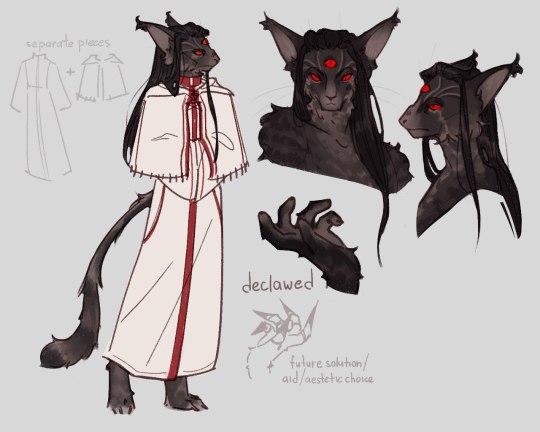
we're living by furry laws in this house so "head fur" aka hair is an option and im using it. period. another unpopular(??) choice is giving narinder a fur pattern, and don't get me wrong i love the pure black void nari, but as an artist i enjoy making up details to draw, so i indulged myself here. (but if i ever were to draw comics with him i would simplify it or just make him all-black, because repeating this every frame is a misery. fun for a one-off ref sheet tho)
not a lot of lore stuff for the guy since the idea of the au is still fresh and im figuring it all out, but there're design inspirations under the cut if you're interested!!
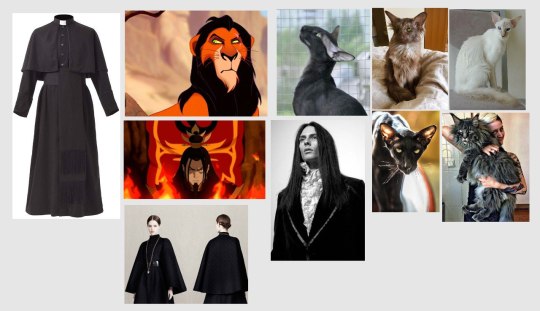
sooo lets go
i wanted narinder to have that dramatic sharp featured og cartoon villain look, so i took inspiration from oriental longhairs for the facial structure and from maine coons for fluffy dramatics. also i just love using maine coons as cat references. look at those things. marvellous.
from the very start (pretty much) my brain was consistently giving me images of narinder with hair, specifically dark long-ish straight-ish, so i tried to walk this mental image backwards to find the origins of it, and i think scar and ozai are my best bets. in my first sketches narinder had shoulder length hair with slight waves, but in the end i opted for long and straight. not really a reason to, just was vibing better to me
clothes are pretty standard narinder robes i think. i find it funny that fandom unanimously gave him basically a priest outfit, and i like it too, so i kept it. that red stripe gave me a little bit of a headache though, couldn't get it to look okay and not weird or tacky. i think i managed. i had to contain my urge to design him an intricate outfit with different textiles and embroidery and shit, but i try to keep it at least somewhat tied to logic and the au, and let's say that no-one was willing to do something this elaborate for narinder for quite some time
and some lore crumbs
• narinder is declawed (after his defeat that is).
see the narinder's claw relic and the whole do no evil motive. the most evil narinder directly did was the injures he inflicted on his siblings, and he did it by, quoting shamura, "such sharp claws". so yeah, that tracks. funfact i considered taking only one of his claws, from the left ring finger, because the relic is "narinder's claw" singular, but "callamar's ear" relic is also one ear and not two, so it didn't feel kike a good enough basis to take only one claw yk. so sorry big cat, all your claws are now gone
• lamb did kill narinder after defeating him. there's nothing on the pic that's tied to that fact, just thought it would be interesting to know
#i forgot the FUCKING VEIL#okay I'll add it later with a reblog i don't have it in me to draw it now#but yk it does exist#with death comes peace au#cotl#cotl narinder#my art
556 notes
·
View notes
Text
orphic; (adj.) mysterious and entrancing, beyond ordinary understanding. ─── 004. the blueprint.

-> summary: when you, a final-year student at the grove, get assigned to study under anaxagoras—one of the legendary seven sages—you know things are about to get interesting. but as the weeks go by, the line between correlation and causation starts to blur, and the more time you spend with professor anaxagoras, the more drawn to him you become in ways you never expected. the rules of the academy are clear, and the risks are an unfortunate possibility, but curiosity is a dangerous thing. and maybe, just maybe, some risks are worth taking. after all, isn’t every great discovery just a leap of faith? -> pairing: anaxa x gn!reader. -> tropes: professor x student, slow burn, forbidden romance. -> wc: 4.3k -> warnings: potential hsr spoilers from TB mission: "Light Slips the Gate, Shadow Greets the Throne" (3.1 update). main character is written to be 21+ years of age, at the very least. (anaxa is written to be around 26-27 years of age.) swearing, mature themes, suggestive content.
-> a/n: holyyyyy its finally here !!! this chapter was totally supposed to be the chapter that kind of puts things in perspective and establishes some world building BUT ALAS I GOT SIDETRACKED... -> prev. || next. -> orphic; the masterlist.

The lecture hall is silent, save for the occasional shuffle of paper and the measured rhythm of Anaxagoras’ voice. The afternoon light cuts sharp lines across the rows of desks, dust motes drifting in the air like suspended thought, catching on the edges of his words.
“A fractal begins with a base function,” he says, voice steady but threaded with something deeper—something that hums in the spaces between his syllables. “This is its essence. The foundation upon which all complexity unfolds.”
He doesn’t write an equation. Instead, his hands move through the air in clean, deliberate arcs, shaping the concept in motion.
“The Mandelbrot set,” he continues. “begins with a simple recursive function. A value is taken, transformed, then fed back into itself. Each iteration alters the outcome—but the fundamental pattern remains.”
He pauses, letting the weight of his next words settle into the quiet.
“Small differences in the starting value can lead to vastly different structures. But no matter how much it expands, the same signature is imprinted within it. Recursion does not create randomness. It does not erase its origin. Instead, it refines, elaborates, expands. The original form is never lost—only expressed in infinite variation.”
The pen in your hand is warm from where you've been holding it too tightly.
Anaxagoras moves seamlessly into the next thread of thought. “The human mind operates on patterns,” he says, underlining the phrase on the board with a slow, deliberate stroke. “Not in the sense of mindless repetition, but as a structured, evolving process. We recognize, reinforce, and refine information based on prior input.”
Something tugs at the edge of your mind.
“Consider language acquisition,” he continues. “A child is not born knowing a language, yet the structure for it already exists. Exposure, experience, and interaction shape the outcome, but the capacity is inherent. The process is iterative—the same foundation, refined through use, altered by context.”
Your pen hesitates, ink pooling in a single dot on the page.
Ilias nudges your arm. “That same page has been open for five minutes,” he mutters.
You don’t answer.
It’s there. Right there, just beyond reach—woven between the lines of his lecture and the contours of your own thoughts.
Your gaze lifts to him.
Anaxagoras isn’t looking at you directly, but you recognize it now—the way his tone shifts when he lingers on certain ideas. His phrasing is precise, yet measured, as though anticipating the moment someone follows him past the obvious.
Anticipating you.
Ilias nudges you again. “You’re making the face.”
You blink. “What face?”
“The one where you’re about to say something wildly specific that sounds normal to you but makes the rest of us reconsider whether we know what words mean.”
You swat at him without looking, keeping your attention fixed forward.
"If individuality is a function of iteration," you say suddenly, the thought slipping free like a thread pulled from a greater weave, "then at what point does the original form stop being relevant?"
Silence.
A shift in the air—it’s subtle.
Anaxagoras pauses. The chalk in his hand stills just before it touches the board. But he doesn’t turn. Not yet.
"You assume it does," he says instead, his voice measured. "Why?"
You hesitate. "Because—" You try to grasp at the thought, but it’s slipping, unraveling. "Because if every iteration changes, then the original—"
"Changes how?"
You blink. "Through variance. Accumulated difference."
He nods, but it’s not satisfaction. It’s expectation. "And yet?"
You frown. "And yet it still carries the same process—"
"So is it severance?"
You inhale sharply. "No."
He turns now, finally, and the weight of his gaze lands fully on you. "Then what is it?"
You search for the word, the shape of the idea curling at the edge of your thoughts.
"Extension?" you murmur.
Anaxagoras watches you for a long moment, his expression unreadable. Then—so slightly you almost miss it—his fingers tighten around the chalk.
"Hm."
A pause.
The weight of his gaze—assessing, acknowledging, remembering, as though he’s not just hearing your words but recognizing them, as though he’s tracing a pattern he’s seen before but can’t quite name.
Then, just as smoothly, he turns back to the board as if nothing happened, resuming his explanation.
You exhale sharply, pressing your lips together to stifle a grin.
You’re not sure if you should thank Anaxagoras or be absolutely, thoroughly frustrated with him.
Maybe both.
He takes a step forward, chalk tapping against the board in a series of crisp strokes as he shifts the topic. And then—
“Ilias.”
Ilias straightens instantly, caught mid-whisper.
Anaxagoras doesn’t turn. “If a system is defined by iterative transformation, how do we distinguish between growth and replication?”
Ilias scoffs, leaning back like this is the easiest question in the world. “Obviously, if a system changes with each iteration, it’s growth. If it just repeats the same process without meaningful difference, it’s replication.”
A beat.
Anaxagoras finally glances over his shoulder. “Incorrect.”
Ilias blinks. “What.”
Anaxagoras turns fully now, expression unreadable. “Your answer assumes that change alone defines growth. It does not.”
From beside him, you let out an involuntary snort.
Ilias’ head snaps toward you. “Oh, now you have an opinion?”
You press a hand to your mouth, eyes gleaming with barely suppressed amusement.
Anaxagoras waits.
Ilias flounders for a moment, then straightens again, clearing his throat like he can salvage this. “Okay, well—uh. If the transformation process is… uhh… significant enough, then—”
A long silence.
You don’t even try to hide your giggle this time.
Ilias throws his hands up. “Why are you laughing? You got to say your freaky little statement in peace!”
Anaxagoras raises an eyebrow. “Language.”
Ilias pales.
You wheeze, turning away.
Ilias exhales sharply, running a hand through his hair like he’s fighting for his life. “Alright, fine. Recursion isn’t just about repetition, but about… contextual… refinement..?”
The silence hung thick, oppressive, as Ilias struggled to string together a coherent thought. His hands fumbled with the papers in front of him, and his voice cracked under the pressure. It was clear to anyone with half a brain that his attempt to impress Anaxagoras had backfired—again.
Then, cutting through the stillness, came a voice. Quiet but firm.
"It’s not just about change. It’s about the system responding to its environment. If it doesn’t, it’s not really transformation. It’s just… repetition."
Ilias’s head snapped up. The voice had no warning, no introduction—just a cool, steady presence that seemed to effortlessly cut through the tension.
For a split second, he blinked in confusion, his mind scrambling to process what had just happened. He’d been so caught up in his own rambling, he hadn’t noticed anyone else was around. But there, seated a couple chairs over, was a girl he hadn’t seen before. Dark, hair, eyes sharp with quiet confidence, arms folded across her chest. She was a mystery—a calm, collected contrast to the chaos that he had just created.
Ilias swallowed, throat suddenly dry. "That was… uh. Really well put." His laugh was quieter this time, edged with something like genuine relief. "I was—yeah. Definitely struggling there." He hesitated, then, almost earnestly: "Thanks."
The girl didn’t say anything right away. Just tilted her head slightly, studying him with a kind of quiet amusement.
Anaxagoras’s gaze flicked between them, the silence stretching just a beat longer than comfortable. Then, finally, he exhaled through his nose, barely a sigh but just enough to be perceptible. His eyes landed back on Ilias.
"Struggling is a generous term," Anaxagoras said dryly.
Ilias groaned, dropping his head onto his desk with a thud.
Finally, after what seemed like an eternity, Anaxagoras exhaled slowly, a faint, begrudging noise escaping him. His gaze flickered back to the girl for a moment, a brief acknowledgment that didn’t quite touch his eyes.
“Acceptable,” he said, his voice crisp and without fanfare, before his attention returned to Ilias. “This time.”
It was as close to praise as Anaxagoras was ever likely to give.
You grin. “That was impressive. Truly.”
Ilias glares. “I hate you.”
But across the room, Anaxagoras’ gaze flickers back to you for a fraction of a second—just enough for you to notice, just enough to make your pulse quicken.
And then, as always, he moves on as though nothing happened.
Yet, your thoughts linger, trailing behind you as the lecture ends, as you gather your things, as you step into the quiet corridors where the conversation still churns in your mind, unfinished.

The evening air is crisp, carrying the faint scent of autumn leaves as you and Ilias walk down the winding campus path, the crunch of gravel beneath your shoes the only sound for a few moments. It's a comfortable silence—both of you are still processing the mental gymnastics Anaxagoras just put the class through.
And then, of course, Ilias ruins it.
“I’m being publicly executed in that classroom,” he groans, dragging a hand down his face. “Every. Single. Lecture.”
You glance at him, amused. “What are you even talking about?”
He throws his hands up. “Oh, I don’t know! Maybe the part where he treats me like an enrichment activity for the class while you get revered like some kind of academic deity.”
You snort. “I am not—”
“You wouldn’t understand,” he cuts in, shaking his head dramatically. “You don’t know what it’s like to be the designated clown. To live in fear of the moment he decides today is the day to obliterate me for sport.”
You raise a brow. “Maybe if you stopped making questionable philosophical takes—”
“No. It’s too late for me. But you—” He points accusingly. “You get the pauses.”
You blink. “The what?”
“The pauses,” he repeats, exasperated. “You ask something, and he actually stops. Like, for a second, he’s just standing there, processing, recalibrating his entire existence before he answers like he saw it coming all along, and proceeds worships the ground you walk on. Meanwhile, I breathe wrong, and he materializes a ten-minute verbal essay on why I’m incorrect.”
“…That’s not true.”
“Oh, it is,” he deadpans. “I’m a walking rhetorical question to that man. You, on the other hand? He actually looks pleased when you speak. It’s sickening.”
You shake your head, biting back a smile. “You’re being dramatic.”
“And you,” he sighs, shoving his hands into his pockets, before something catches the corner of his eye– "Hey! It’s a dog!"
You barely have time to process before he veers off-course, pointing toward a scruffy-looking mutt curled up near a campus bench. The dog lifts its head, ears perking, but doesn’t bolt. Its fur is a patchwork of colors—mostly brown, with streaks of white and black—and though it looks a little unkempt, it seems well-fed.
"Do you think it's a stray?" you ask, stepping closer.
"I mean, it’s wearing a bandana." Ilias crouches, squinting at the little fabric tied around its neck. The dog watches him, tail thumping hesitantly against the ground. "Could be a lost pet. Or maybe it just—"
The dog trots forward, sniffing at your shoes before nudging its head into Ilias’ leg. He yelps, stiffening. The dog wags its tail harder.
"Okay," he breathes, lowering his hand. "Okay. This is happening."
Just as his fingers brush the dog’s fur, a voice interrupts. "Ah—hey, hey, don't scare him!"
You turn towards the source—a striking figure with windswept white hair, piercing blue eyes, and an air of effortless charm, jogging up to you, grinning like you’ve all just been reunited after years apart. His crisp, button-down shirt is a pristine shade of ivory, tailored to fit perfectly without appearing rigid. Over it, he wears a sleek, deep-blue blazer, unbuttoned, its lapels lined with subtle gold embroidery that catches the light as he moves. The blazer is paired with well-fitted slacks of a similar navy hue, pressed yet comfortably worn. A fine gold watch glints on his wrist, peeking out whenever he gestures animatedly. His shoes—polished but practical—carry a quiet confidence, much like him.
His energy is immediate, warm and bright, like he’s been waiting all day for a reason to talk to someone.
"Sorry about that!" He slows to a stop, catching his breath. "This little guy's not a stray—he just likes hanging around here. We feed him sometimes."
You blink. "We?"
The dog immediately abandons Ilias and darts across, tail wagging furiously as a second man crouches, offering food from his hand—a stark contrast. This one has sharp red eyes, dusty red hair falls at his shoulders. He, in contrast, wears black. A fitted, long-sleeved dress shirt clings just right, the top few buttons left undone, exposing the faintest hint of skin. The sleeves are rolled up to his forearms, revealing the inked patterns winding down his left arm. A single silver ring rests on his hand, catching the light as he idly scratches behind the stray dog’s ears. His charcoal-gray slacks fit comfortably, cinched by a belt with an unembellished black buckle. Unlike… blondie’s polished look, his ensemble leans effortlessly sharp—a perfect balance of refinement and disregard.
"That answers that," you murmur.
The white-haired one—Phainon, judging by the way his companion sighs his name in exasperation—grins. "Sorry if he harassed you. He’s just a friendly little guy. I’m Phainon, by the way! And the one who’s pretending not to give a damn right now is Mydei."
At his name, the other man—Mydei glances up briefly, gaze flickering over you and Ilias before returning to his task. He places the container on the ground, and the dog immediately perks up, trotting over to eat.
Ilias, still kneeling awkwardly, exhales. "Okay. Not a stray. Noted."
Phainon beams. "Yeah, he just likes people! Kind of like me."
"Don’t compare yourself to a dog," Mydei mutters, scratching behind the mutt’s ears. Despite his dry tone, there’s a distinct lack of bite to it.
You exchange a glance with Ilias, who looks like he's trying to decide whether this interaction is going to be amusing or exhausting.
Mydei, meanwhile, finishes setting down the food, and the dog immediately perks up, trotting over to eat. Phainon watches with fondness before turning back to you both.
Ilias, undeterred, crouches slightly, watching as the dog happily devours its food. Then he tilts his head. "Wait, does he have a name?"
Phainon perks up. "Oh! Yeah, we call him—" but before the word fully escapes, Mydei cuts in flatly. "No, he doesn’t."
Phainon sighs, as if wounded. "Well, someone refuses to name him anything else–"
"He doesn’t need a name," Mydei replies, scratching the dog behind the ears. "He’s fine as he is.”
“We call him—his name is Dog." Phainon interrupts and proudly exclaims.
Mydei exhales sharply, pinching the bridge of his nose. "'Dog' is not a name."
"It's a perfectly functional name," Phainon counters, crossing his arms. "It tells you exactly what he is."
"It tells me you’re uncreative," Mydei mutters.
Ilias lets out a quiet laugh. "The dogs name is… Dog?"
Phainon nods enthusiastically. "Yes! And he responds to it! Watch—Dog!"
The dog does, in fact, lift his head, ears twitching.
Mydei gives him a long, unimpressed stare. "He also responds to literally any sound you make. You could call him ‘Toaster’ and he’d do the same thing."
Phainon gasps. "Toaster is kind of cute."
"Absolutely not."
You exchange a glance with Ilias, both of you barely holding back laughter. The dog—Dog?—wags his tail, blissfully unaware of the existential debate happening over his name.
Phainon turns his attention back to you, his grin softer now, less performative. "Anyways, you two should join us in the evenings if you’d like to befriend Dog over here! We usually hang out around here and—well, I do… and Mydei pretends he just happens to be here."
"Because I do," Mydei deadpans, but he doesn’t refute any further, turning his gaze to you instead.
Ilias glances at you. "Well, I don’t have anything better to do."
You hum, considering. The dog has finished eating and is now curled up against Mydei’s side, content. Phainon looks at you expectantly, his posture light, easy.
...That does not sound like a productive use of your time.
"... I’m in." you say.
Phainon cheers, Ilias pats you on the back, and Mydei only shakes his head, unimpressed.
But even as laughter rings in the air, your notebook sits heavy in your bag, pressing against your side like a restless thing. The pages whisper against each other with every step, the unfinished nonsensical equations scrawled within tugging at you like a sleeve caught on a nail—persistent, insistent, refusing to be ignored.

Maybe that's what brought you here, you tell yourself.
The door to Anaxagoras’ office door creaks as you push it open, stepping into the dimly lit office. Anaxagoras looks up from his desk, dark eyes flicking to the threshold with the mild expectation of a routine interruption. But when he sees you—alone, unannounced—something in his expression shifts.
You don’t exactly wait for permission, as you cross the room, pull out the chair opposite him, and sit.
His pen hovers over the page. He does not tell you to leave, nor does he acknowledge your quiet audacity. Instead, he sets his pen down, fingers pressing lightly against the desk’s edge, and waits. A slight lift of his brow, but no verbal response. Just patience. A steady, expectant silence.
"Professor," you greet, as if a sliver of formality might excuse the sheer audacity of your unannounced arrival.
Your gaze flickers down to your notebook, its pages filled with hurried, half-formed thoughts—equations scrawled into the margins, trailing off as if they were abandoned mid-realization. You don’t need to check them. You already know they lead back to the same question.
"The base function," you begin, voice measured, "remains the same, no matter how many iterations occur. No matter how much complexity emerges, the original structure is never erased."
Anaxagoras leans back slightly in his chair, studying you with the kind of intrigue usually reserved for theorems that refuse to be solved.
"And?"
You exhale, fingertips brushing over the ink-streaked paper. "If that applies to consciousness—if the mind isn’t just pattern recognition, but recursion—then that means identity isn’t fixed. It’s an evolving expression of an underlying structure."
Something flickers in his gaze. He rises.
Not abruptly, not impatiently, but as if drawn by the gravity of the conversation. His chair scrapes softly against the floor as he crosses the small space between you. He does not sit at the edge of the desk, does not fold his arms in some passive stance of authority.
Instead, he leans over your notebook, shoulders nearly brushing yours.
The scent of coffee lingers on his shirt, mingling with the fainter trace of old paper and ink. His gaze moves over the mess of your notes, scanning the tangled web of equations and annotations, before settling on you again.
"You're making an assumption," he says, voice lower now, more measured.
You tilt your chin slightly, meeting his gaze. "Of what nature?"
His fingers hover near the edge of the page, not quite touching, but close enough that the movement draws your attention. "You assume that the core of identity—the thing that stays the same through every iteration—is purely structural."
The silence stretches between you, taut as a thread on the verge of snapping.
Your breath is steady, but something in your pulse betrays you. He is too close. Not inappropriately so, not in a way that crosses any boundaries—only in a way that makes the air shift. The room smaller. The moment stretched just slightly beyond its logical bounds.
It would be easy to answer. To argue, to press forward, to let the academic current carry you both into safer waters.
Instead, you only watch him.
And for the first time, you wonder if he feels it too.
Your fingers tighten slightly around your pen.
"The base function has to be structural," you counter, though your voice is softer now, measured against the weight of the space between you. "If it weren’t—if it were mutable at its core—then what holds continuity between iterations? What prevents identity from collapsing into chaos? What keeps one’s identity from falling apart?"
Anaxagoras doesn’t move away. He studies you the way he studies difficult problems—patiently, intently, as if waiting for the answer to emerge in real time.
"And yet," he muses, "if it were purely structural, if the function was rigid rather than dynamic, then identity would be deterministic. There would be no true variation between one individual. and another"
Your breath catches—not at the words, but at the way he delivers them. Low, deliberate, as if testing their effect.
Your eyes flicker back to your notes, searching for the answer already buried in the ink-scrawled equations.
"If recursion alone dictated identity," he continues, fingers brushing the page near a half-written derivation, "then all of our decisions would be predictable, predetermined by the constraints of that function. But something else is at play."
You glance back up at him. "Emergent complexity."
A small, almost imperceptible nod. "Iteration isn't replication. Each step in it's expansion is influenced not just by the base function, but by external conditions—context, interference, interaction. No two paths are identical. Every recursive process has the potential for divergence."
You inhale sharply, following the thought as it unfolds, as it threads itself between the logic you already understand and the realization taking shape.
He watches the shift in your expression—sees you arrive at the same conclusion.
"If identity," you say slowly, "is shaped not just by its internal function, but by its interactions—"
"Then when two distinct but intrinsically linked patterns cross paths," he interjects, "neither walks away unchanged."
The words land too heavily.
Not just because they are true, because they make sense.
But because he isn't speaking in hypotheticals anymore.
For a moment, neither of you move. He is still leaning over your desk, too close, breath dusting lightly against your shoulder—warm, uneven, just barely there. His presence presses into the space between the pages, the margins, the frantic scrawl of your thoughts.
Your fingers brush against the edge of your notes. "And what happens," you murmur, almost to yourself, "when two of these... structures become entangled?"
Anaxagoras holds your gaze.
"You tell me," he says.
A slow breath. Hesitation.
"...Change is inevitable," you murmur. "Not a choice, not an accident—just a consequence of proximity."
Something flickers across his expression—too brief to name, too quick to be certain.
He should correct you. Should challenge the conclusion you’ve drawn.
Instead, he watches you, head tilting just slightly—less like a professor considering a theory, more like something else entirely.
Your breath stills. The moment lingers too long.
You shift slightly, glancing down at your notes.
"Perhaps," Anaxagoras says at last, his voice quieter than before, "but not all change is equal."
"... And what determines the difference?" you ask, softer now.
His eyes don’t leave yours. "The depth of the resonance."

The night air hums with a quiet sort of clarity as you step out of the grove, the weight of the conversation still curling around your ribs like an uncollapsed waveform. The campus pathways are near-empty at this hour, bathed in the soft glow of lamplight. Each footstep crunches softly against the gravel, the rhythm steady, measured—nothing like the chaotic pulse beneath your skin.
You aren’t entirely sure how long you sat there in his office. The concept of time had blurred somewhere between the pages of your notes and the weight of his gaze. Between the fractal recursion of thought and the unsettling realization that—perhaps—you weren’t just speaking of equations anymore.
Your fingers tighten around the strap of your bag as you walk.
(If recursion applies not just to thought but to interaction—if the base function of identity is altered through contact—then what does it mean that his presence lingers in your mind long after the conversation has ended?)
The wind shifts, cool against your skin, but it does little to steady the unshaken cadence of your pulse.
Anaxagoras had let the silence stretch before you left. No dismissal, no final remark to wrap the conversation into something neat and containable. Just that lingering weight—his dark eyes studying you, as if waiting for you to arrive at the realization before he acknowledged it himself.
(The depth of the resonance..?)
You exhale sharply, shaking your head as if that alone could unravel the thought from your mind.
Your dormitory looms ahead, its familiar outline silhouetted against the night sky. The building is quiet when you step inside, the soft hum of distant voices muffled through the walls. You move through the dimly lit corridors with muscle memory, feet carrying you forward while your mind is still somewhere else.
Your door clicks shut behind you, shutting you into the quiet stillness of your room.
Everything here is familiar. The unmade bed, the clutter of books on your desk, the notebook you’d left open earlier with some half-scribbled thought that now feels embarrassingly simplistic. The air smells faintly of old paper and the lingering trace of coffee grounds from this morning—scents that should root you back into the present.
But they don’t.
Not when your mind is still back in that office.
Not when you can still hear the quiet cadence of his voice, the deliberate pause before he spoke—
You press your fingers to your temple, willing yourself to unspool the loop of recursion that has latched onto your thoughts.
It’s fine. This is fine.
The conversation had been an extension of an intellectual discourse, nothing more. You were both speaking in abstracts, exploring a hypothesis. That’s what you do. That’s what you’ve always done.
Then why did you feel so different?
You swallow, exhaling through your nose.
Your notebook is still in your hands, the pages curled slightly from the way you’d gripped them on the walk back. Slowly, carefully, you set it down on your desk, flipping back to the last scrawled equation.
Identity = f(Iteration, Context, Interaction)
A slow inhale. Your fingers brush over the ink-streaked margin, a reflexive motion—an attempt to ground yourself.
Then, after a moment, you reach for your pen.
The ink flows smoothly as you add another line beneath the equation, hesitating for only a second before you let the words take form.
Resonance determines the rate of transformation.
You stare at it.
And then—slowly, deliberately—you close the notebook.

-> a/n: hey, if you've made it this far i SERIOUSLY commend your strength. i had to take several breaks while proofreading this because i, the writer, myself could not process their words at one stretch... erm... so, here's a mini explanation with an analogy, if any of you are actually interested in what they were talking about. Imagine you're building a snowman. At first, it’s just a small snowball in your hands. But as you roll it, more snow sticks, and it grows bigger and bigger. You stack more snow on top, shape it, maybe add a scarf or a carrot nose. No matter how much it changes, the first snowball—the one you started with—is still there, buried inside. It never went away, it just became part of something bigger. That first snowball here is like the core of 'identity'. Everything else—your experiences, choices, and changes—builds on top of it, but it’s always there, shaping who you are.
-> next.
taglist: @starglitterz @kazumist @naraven @cozyunderworld @pinksaiyans @pearlm00n @your-sleeparalysisdem0n @francisnyx @qwnelisa @chessitune @leafythat @cursedneuvillette@hanakokunzz @nellqzz @ladymothbeth @chokifandom@yourfavouritecitizen @sugarlol12345 @aspiring-bookworm @kad0o @yourfavoritefreakyhan @mavuika-marquez @somniosu

#❅ — works !#honkai star rail#honkai star rail x reader#hsr x gn reader#hsr x reader#anaxa x reader#hsr anaxa#hsr anaxagoras#anaxagoras x reader
216 notes
·
View notes
Text
Because I think everyone should know this today:
✨ How To Spot Generative AI Slop: Save Your Media Literacy! ✨
For AI images:
- Zoom in as close as you possibly can to background details. AI can make decently cohesive foregrounds but struggles with complex backgrounds.
- Keep an eye on patterns. Are they wobbly, inconsistent, fading out in weird places, or fusing into other parts of the image? That’s probably AI.
- AI tends to “stylize” images in weird ways that are meant to mimic staging or strong lighting, but it usually ends up giving it a weird reflective, airbrushed, or “plasticky” shine. Even if there are multiple textures in one image, they’ll usually end up looking nearly identical.
- Watch for “objects” in the image that look like nothing at all (blobs, deformed items, and general objects that you can’t even tell what they’re supposed to be) or “artifacting” in otherwise polished images.
- Symmetry is usually nonexistent, especially in architectural images.
- Text and numbers will usually be misspelled, inconsistent, or out of order.
- Mechanical images are usually a dead giveaway if you look close; none of the components or mechanisms will even appear to be functional or make sense in terms of construction.
For AI videos:
- As with AI images, check the backgrounds and you’ll see some absurdly nonsensical stuff.
- AI can’t generate convincing longform video, so keep an eye out for videos that “compile” or abruptly cut and splice different clips every 10 seconds or so.
- The movement in AI videos is not convincing at all, especially with human movement. Figures will all move at roughly the same pace, in partial slow-mo, or with a “floaty” or gliding quality to them.
- Keep an eye out for general logical errors; crowds of people tend to blend into each other or move strangely, cars will drive the wrong way on roads, etc.
- Faces won’t emote accurately (or at all), especially in eye and mouth movement. Emoting will make the entire face warp strangely. If a video relies a lot on facial movement, the figure and background will often be completely static.
For AI text/ChatGPT:
- Watch for unnecessarily long blocks of text where a short sentence or two would be preferred.
- ChatGPT relies heavily on descriptors and adjectives that fill out the writing but add nothing at all to the content. Be mindful of long descriptions and “explanations” that actually say nothing at all.
- AI can’t distinguish its “voice” or tone, so a lot of ChatGPT writing is unnecessarily verbose or formal. Even if the AI is initially trying to generate a casual voice, it can abruptly change into formal language.
- Keep an eye out for repetition of words, phrases, or concepts in general. AI can’t tell when it’s repeating itself, especially in longer passages, and you’ll typically notice one specific phrase or descriptor constantly being used.
- If attempting to write in an informational or “how-to” tone, ChatGPT won’t actually include any details or elaboration; any information it does give out will be overly general or vague.
- When AI generated information is fake, it’s usually egregiously fake. If you find a factual error that no person would have made, especially in a format that would have required an editor to put out, it’s likely ChatGPT generated.
For AI voices:
- The typical tone of voice will usually be flat and lack any emotion, even when trying to imitate it. AI voices tend to speak as if they’re reading off an essay, which is especially noticeable if they try to read a colloquial script.
- Listen for distortions or inconsistencies in the voice. Some AI voices constantly have an unnatural or synthesized tone or will slur when trying to read an unfamiliar word, repeating characters, or different languages.
- AI voices will sometimes pronounce the same word completely differently if read in the same sentence or audio clip.
- AI doesn’t know how to properly read sentence structures, so AI voices will sometimes read off scripts in stilted or grammatically incorrect ways. Pay attention to random pauses, bad pacing, or weird inflections on words.
101 notes
·
View notes
Text
I want to spend a minute pushing back on the idea that nothing supports Gwynriel in ACOSF or that certain online accounts influence the idea of it. I mean, I specifically can recall how significant it felt the first time I read when Gwyn and Azriel first see each other after the horrors at Sangravah. Through Cassian’s POV in ACOSF, it’s noted that “Gwyn had been distracted today – one eye on the other side of the ring. Cassian could only assume she was watching his brother, who had given Gwyn a small smile of greeting upon arrival. Gwyn hadn’t returned it.”
Basically, I instantly took notice of this first interaction and I think about it quite often. The specificity and perspective in which it's written is intentional. SJM didn’t have to include it or write it this way, so why is it there?
And further, by the time I reached the last page of ACOSF upon my first reading, I was certain that Gwyn was being set up as Azriel’s love interest and mate. The real kicker though is that I didn’t even know about an Azriel bonus chapter for almost two years after I first read ACOSF. I wasn’t online much then -- my mom was ill and passed away during that time, and I had stepped back from being online. So, I missed those early ACOSF conversations among the fandom until almost 2023. I definitely wasn’t influenced by any online opinions or accounts, and the bonus chapters just weren't on my radar until almost two years after ACOSF was released.
So the point is, the setup of Azriel and Gwyn was clear to me just within the context of the primary ACOSF text. When I eventually read Azriel's bonus chapter, the only thing I felt was validated in my initial opinion of what SJM was setting up with him and Gwyn. It was beyond clear. The language, symbolism, and structure of the bonus chapter were all so intentional and consistent with what we should already identify within SJM’s writing.
I’ve been reading SJM since 2012 when Throne of Glass was first published. I was a high school librarian then, and the students and myself were obsessed with her books in those early days of a fun, new fantasy series. I now teach junior/senior level high school literature courses, and I approach my critical reading of SJM the same way I do in the classroom. I teach patterns we encounter when it comes to an author’s voice, prose, rhetoric, and literary device use. So just like how I’d point out to students that Jane Austen utilizes social commentary and wit along with her free indirect discourse narration, and we can find those patterns throughout all of her novels – I can also identify how SJM utilizes specific language, characterization, symbolism, and plot devices when it comes to romantic pairings and the notion of mates in her novels. Thirteen years of reading SJM (and many more years of studying and teaching literature) makes those patterns shine like Gwyn when she sings with the priestesses.
This is getting too long and I’ll leave it here for now . . . but trust that I have MUCH more to elaborate on here with specifics and will consider posting more analysis in case anyone wants to read it (if anything, it just makes me feel better to get my thoughts out). But, yes, it should be clear from that first interaction in ACOSF that something specific was being introduced, and that the rest of the novel continues to arrange chess pieces for a pairing between Azriel and Gwyn. 🙂
92 notes
·
View notes
Text
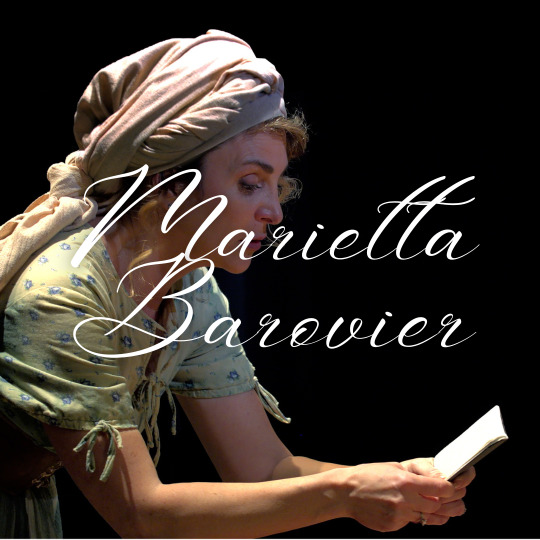
Marietta Barovier (fl. 15th–early 16th century) was one of the rare female glass artists of her time, renowned for both her technical innovations and artistic mastery. Coming from a family with a long tradition of glassworking, she left an indelible mark on the craft.
Inventing the rosette beads
Marietta was the daughter of Angelo Barovier, a master glassmaker, and lived on the island of Murano in the Venice lagoon. Her family, active in the glass trade since the late 13th century, was one of the most esteemed in the field.
In 1460, Marietta inherited her father’s workshop and managed it alongside her brother, Giovanni. In 1480, she revolutionized Venetian glass art by creating the Rosette, a type of intricately layered bead. These beads were made from multiple layers of glass, their structure revealed by the fluted edges at either end. So famous were they that, in 1519, conquistador Hernán Cortés wore a necklace of such beads when he met Emperor Moctezuma II, exchanging it for the Aztec ruler’s gold necklace.

Rosette beads
A renowned glass painter
Beyond bead-making, Marietta was celebrated for her skill as a glass painter. She and another woman, Elena de Laudo, were the only two female artisans among the fourteen specialist glass painters recorded between 1443 and 1517. Like Marietta, Elena hailed from a family of glass artists.
These painters worked with enamel on richly tinted glass—most commonly sapphire blue, but occasionally emerald green or aubergine purple. In 1487, a document records that Marietta was granted a special privilege to construct a kiln specifically for producing “her beautiful unusual and not blown works.”
Although no works can be definitively attributed to her, her family’s inventory provides valuable clues about her creations. One entry mentions a cup painted with a portrait of the poet Dante. Some speculate that she may have contributed to the Coppa Barovier, now housed in Murano’s Glass Museum.


Coppa Barovier
Objects from her workshop featured elaborate enamel decorations, including floral motifs, geometric patterns, and gilded details. Light blue, white, red, and green were the preferred enamel colors. While sacred themes were present, her designs more frequently drew from secular, mythological, and allegorical sources, inspired by contemporary miniatures and woodcuts.
Marietta Barovier likely passed away in the early 16th century.
If you enjoy this blog, consider supporting me on Ko-fi!
Further reading:
Mariacher Giovanni, “Barovier”, Dizionario Biografico degli Italiani - Volume 6
Small Meredith, Inventing the World: Venice and the Transformation of Western Civilization
Syson Luke, Objects of Virtue: Art in Renaissance Italy
#marietta barovier#elena de laudo#history#women in history#women's history#15th century#16th century#historyedit#italy#italian history#venice#murano#venetian glass#women at work#businesswomen#female artists
61 notes
·
View notes
Text
@clingyduoapologist made a really cool “what if DSMP were a stage play” post and basically the instant I saw it I was struck by the muse but I don’t want to just chain reblog the dang thing or make one huge reblog with all my thoughts so instead here are all my thoughts on this concept
i don’t think it’s a musical. I think the tone of the story doesn’t fit. But if it were, it would have a Lot of scenes of unsung dialogue, and that dialoge? Would be rhythmic poetry. It’s Shakespeare Appreciation Time baby.
i do however think there would be a live score and an orchestra. A lot of the music would need to be recorded but there’s at least be a few musicians.
different characters speak in different poetic styles at different times to communicate character and plot development.
to elaborate on that: Characters switch from loose ABBA or ABAB rhyme schemes and vaguely rhythmic meter when chatting back and forth to strict perfect iambic pentameter for tense scenes or political speeches.
Techno speaks exclusively in unrhyming dactylic hexameter, an extremely common poetic form for Greek and Latin poetry. It’s what the Iliad was written in. This has the interesting effect of making Techno sound, at first glance, unpoetic. His speech doesn’t rhyme, and doesn’t follow a common English rhythm scheme, so it wouldn’t immediately register as structured. However, dactylic hexameter is actually significantly harder to write in English than expected because of our syllable stress patterns. Speaking like that would be, objectively, a sign of extreme intelligence, but could easily be overlooked as coarse uncultured behavior.
Techno’s chorus - composed of audience members, background extras, and people (in safety harnesses) sitting in the theater rafters - speak largely in Greek and Classical Chinese, quoting sections of the Art of War and Homer’s work. The major exceptions to this are ‘Blood for the Blood god,’ ‘no,’ and ‘do it.’ They all wear a hat or some form of headband that has a glowing LED eye, hidden, but activated when they speak. The audience plants are all in dark clothes, and when the lights go down they don medical masks/sunglasses. Anything to obscure their faces.
The Chorus, a group of robed masked people who broke the fourth wall and often entered the audience, was a vital part of early Greek theatre. I am an intolerable nerd, and the thought of sitting in a dark theatre only to hear an low distorted voice beside you start to comment on the play as a whole choir of voices echo around you, then turning to see your seat neighbor is a masked person with a glowing red eye in your forehead? Literally incredible.
Dream is the only character dressed in even remotely modern clothes.
Dream is first seen as someone (again, in modern clothes) sneaking around backstage in a black hoodie: most of the audience probably assumes he’s a stagehand and not meant to be seen. Then, at some point, he moves from behind a set piece and enters the scene as an actual character, revealing his mask.
interestingly, this is really similar to what I believe is a bit of myth about why ninjas are dressed in all black in modern media. They wouldn’t have been irl, they would’ve dressed like civilians. But stagehands in Japanese theatre would dress in all-black, and were often completely visible onstage moving sets - it was common courtesy to ignore them. Then one day some playwright had the brilliant idea of having one of the stagehands enter the story as an assassin, and suddenly every actor in all-black was a threat. For the life of me I can’t remember where I read that but it’s a cool thought :D
Dream canonically can interact with set pieces, lighting, and curtains.
Dream actively directs lighting in scenes he is not in, sitting above the stage kicking his feet.
Dream is often used to hand off props to characters instead of having them pull them from a pocket and pretend they were pulled from their ‘inventory.’ This begins to get confusing when Dream is acknowledged later on as the he person giving, say, TNT to Wilbur, or wither skulls to Techno.
characters address the audience as ‘Chat,’ (English’s first fourth-person pronoun my beloved) almost constantly, especially for comedic purposes- most of their monologues are addressed directly to the audience as well. For Wilbur, it’s a sign of instability when he stops addressing ‘Chat’ and start addressing the sides or back of the stage.
philza enters from the lower audience, right by the stage, probably after pooping up from the orchestra pit and taking a reserved seat halfway through so no one sees the wings.
Tommy has by far the least structured or rhyming dialogue - if it weren’t for how carefully crafted it was it would sound like normal prose.
Tommy speaks to the audience by FAR the most. Wilbur only addresses them when soliloquizing. Techno barely addresses them at all: they address him. Ranboo speaks to the audience only when alone, and it’s usually phrased like he’s writing in his memory journal. Tommy speaks to the audience at first like a loud younger brother. As he gets older, it sounds more and more like a plea for help, a prayer for intervention that will never come. Exile is one long string of desperate begging aimed our way.
Tommy stops speaking to the audience so much after Doomsday. He starts again when Dream is imprisoned. He stops for good when he dies in there, beaten, alone.
Sam and the Warden are meant to be played by different actors, ideally siblings or fraternal twins. They wear identical stage makeup and costumes, but the difference is there. None of the characters acknowledge this.
the Stage would need to be absolutely massive and curve almost halfway around the central audience, largely because it should be able to be split at times into two separate stages to show different things happening at the same time. This could possibly also work if there were two stages, but getting people to easily turn from one stage to the other without loosing sight of what was happening would be rough.
Doomsday taking advantage of the scaffolding in the rafters and using them as the ‘grid’ for the tnt droppers.
actual trained dogs for Doomsday my beloved. Would cost a fortune but could you imagine.
the entire revolution arc ripped off Hamilton, we all know that, I think we can afford to have a stagehand step forward in that frozen moment in time when Tommy and Dream have that duel, grab the arrow, and carry it slowly across the stage right into Tommy’s eye. For morale.
throughout the execution scene Techno keeps slipping out of poetic meter, especially when he sees/is worried about Phil. After the totem (which would be freaking amazing as some sort of stage effect with like lights and red and green streamers or smthn dude-) he stops speaking in poetry. The scene with Quackity is entirely spoken dialogue. Chat is silent. It’s only when he gets back and sees evidence that his house has been tampered with that Chat starts up again (kill, blood, death, hunt, hunt, hunt-) and he starts speaking in rhythm again.
Every canon death, Dream marks a tally on something in the background. Maybe it’s in his arm? Like a personal scorecard. Or maybe it’s on the person themselves, a little set of three hearts he marks through with a dry-erase marker or something.
phil and techno have a lot more eastern design elements and musical influences than the rest of the cast, except for Techno’s war theme which is just choir, bagpipes, and some sort of rhythmic ticking or thumping. Phil’s also got a choir sting but it’s a lot harsher, the ladies are higher and them men lower, and the chords are really dissonant (think murder of crows)
Tommy’s theme has a lot of drums, but its core is actually a piano melody. The inverse of Tommy’s theme is Tubbo’s, but Tubbo’s is usually played on a ukulele. Wilbur is guitar, obv, and Niki’s is on viola.
Quackity is a little saxophone lick. He and Schlatt both have a strong big band/jazz influence.
None of the instruments that play dream’s theme play anywhere else in the music. I’m thinking harp, music box, and some kind of low wind instrument.
#I have more thoughts but apparently there’s a character limit on lists or smthn it wouldn’t post if it were longer :/#molten rambles#technoblade#mcyt#philza#dsmp#theatre#musical theatre#Shakespeare mention#tommyinnit#dream#wilbur soot#dream smp
121 notes
·
View notes
Note
charles or Arthur with a coquette gf? like she’s always dressed in the prettiest frills and the girliest beauty products?
₊ ⊹ ೀ RDR boys w/ an extremely feminine gf ౨ৎ

𝐀𝐑𝐓𝐇𝐔𝐑 𝐌𝐎𝐑𝐆𝐀𝐍
౨ৎ ˖ ࣪⊹ it wasn’t much of a shock for all of the camp members to hear that Arthur Morgan was dating [name]. What was a shock, however, was the fact that he was still interested in love and its affairs despite his experience with past lovers.
౨ৎ ˖ ࣪⊹ Arthur enjoys your femininity. Even if you were quite capable of doing things on your own, he’s quick to act on his feet and gently yet demandingly- take the task off your hands. He wouldn’t want his princess getting all dirty now would he? This statement can go with anything, whether it be cutting vegetables, cleaning the stables, etc
౨ৎ ˖ ࣪⊹ It makes him feel masculine- moreover the idea of saving a damsel in distress then it being demanding or infantilising, except.. you’re not in distress, and.. you don’t need saving from anything.
౨ৎ ˖ ࣪⊹ Your gentle nature makes him swoon. Even if he may not seem like he’s head over heels, just know this man would quite literally crumble beneath you, had you touched him in a way that’d be considered comforting.
౨ৎ ˖ ࣪⊹ He adored the way you dress. Pretty, frilly, lacy.. He can’t count how much pink-coloured dresses you’ve worn. When he first met you, he genuinely believed you were some kind of rich city girl with the pretty articles of clothing you always wore. Sometimes, he likes drawing you in your ribbon-tipped dresses and floral patterned tops.
౨ৎ ˖ ࣪⊹ If you happen to use some of your makeup for anything, hes quietly admiring you. He was raised traditionally, so he’d ask.. why? Simply you’d reply, ‘I like how it looks on me.’ He’d be even more confused. You were always pretty, so.. why.. At this point, he needed to stop thinking. He just wanted to stare at you.
౨ৎ ˖ ࣪⊹ Petnames he’d use for you would include: princess, sugar-plum, or doll. Elaborating for princess; because you look like a princess and you act like one, and for sugar plum- he’d think it’s a good fit since you were as sweet ‘n’ sugar-y as a plum! and for doll, simply because your facial structure reminds him of those porcelain dolls with those huge doe-y eyes.

𝐂𝐇𝐀𝐑𝐋𝐄𝐒 𝐒𝐌𝐈𝐓𝐇
౨ৎ ˖ ࣪⊹ Okay, yeah. The lingering rumours of him and you dating becoming true was a bit of a shocker. The dynamic between you two was a major difference. Even despite through all of this, Charles simply took a liking for you because of your sweet nature and gentleness with animals.
౨ৎ ˖ ࣪⊹ If you happen to be physically shorter than him, he’d simply smile. He likes the way you could fit in his arms like a teacup kitty. Your weight meant nothing to him, he’s a very- emphasis on very, strong man. Though however, hes a bit reluctant in affection at first, considering it was his first time having a girlfriend, but soon caves in mainly because of your beady eyes looking up at him, practically begging to be squished alive.
౨ৎ ˖ ࣪⊹ When he first met you, he automatically thought of a baby puppy. Your appearance was too much alike of one, and he just needed to.. squish you. But alas, what made him even more attracted was your gentleness and sweetness as mentioned above.
౨ৎ ˖ ࣪⊹ Even if your looks were over a 10, he would still prefer your personality. It was what drew him to you in the first place. The first time he saw you taking care of Jack- oh boy did something inside of him snap. Your way with children was just too loving and too much for his heart to handle.
౨ৎ ˖ ࣪⊹ He doesn’t have much to comment about regarding your fashion style. He does think it’s cute though. He has taken quite a liking to the colour pink and ribbons when you entered in his life. If you happen to ask him for some help in regard to the strings of your pink corset needing to be tightened, he’s eager to help. His burly hands pull lightly yet firmly, since he’s a bit nervous in harming you. A gentle giant.
౨ৎ ˖ ࣪⊹ Charles doesn’t really have a comment on your use of beauty products either. What he does know, is that you enjoy it, and if you’re happy? He’s happy. He takes in mind the firm amount of pink-coloured products you use, when you both go to the city he’s quietly at the sidelines buying those products and hoping it doesn’t differ from the ones you were using.
౨ৎ ˖ ࣪⊹ Petnames he’d use would include: sweetheart, darling, pup. Sweetheart- because.. you literally have a sweet-heart and he thought it was very fitting. Darling was blurted out once from his mouth, and he saw how your beady eyes glimmered so he regularly started using the title darling. And finally, pup- it may seem lowkey cringe at first but pls hear me out. As mentioned before, when he thinks of you, he thinks of tiny puppies. Your eyes were alike of one, and you were as clingy as a baby pup too. So.. it was just mandatory to call you pup.
#fem! reader#arthur morgan x reader#arthur morgan x fem! reader#arthur morgan x fem! you#arthur morgan#arthur morgan x you#charles smith x fem! you#charles smith x fem! reader#charles smith x you#charles smith x reader#charles smith#rdr2 x you#afab! reader
467 notes
·
View notes
Note
Absolutely loving your marine biologist cqms diaries and need to know the full Moshang backstory at once... Why do I see sqh taping programmable LED strips to himself with double-sided sticky tape so that he can 'talk' to Mobei Jun...
Thank you, glad you're enjoying it! As for the story behind MoShang... Sit down, grab a drink, because I am about to do a lot of elaborating!
So first off Dr. Shang Qinghua; he's a very renowned marine biologist, who specializes in Leviathan Class mer language and behavior (though his knowledge regrading the behaviors and linguistic abilities of smaller, coastal species is nothing to sneeze at either). He's the head of Leviathan Class mer study at one of Cang Qiong's facilities; a different facility from the one Dr. Shen Jiu works at, actually! He did spend time working with Dr. Shen; both in school, and during their internships, and during those time periods it was decided that those two should not be allowed to work in the same space as each other. Project Pisces is an exception.
One of Dr. Shang's most well known and well renowned achievements (aside from The Tank Incident which we'll get too) was his part in the illegalization of mer poaching, selling, and ownership. His study of mer habits and language assisted in the official classification of mers as Sentient Species, granting them rights against being killed or owned as pets. He also assisted in the seizure, rehabilitation and release of hundreds of mers previously being kept as pets or sideshow attractions.
Back to MoShang:
Mobei Jun, a category 2 Leviathan Class mer (Yue Qingyuan is a category 3; the first and currently only), was one of Dr. Shang's first subjects of study in his pursuit of proving mers capable of complex language. He was found caught in a fishermen's net and brought to Dr. Shang's facilities for both treatment and study. Almost all of Dr. Shang's knowledge of Leviathan Class behaviors, as well as mer language, was gleaned from his study of Mobei Jun over the course of several months' worth of treatment and rehabilitation. He spent hours and hours outside the mer's enclosure, speaking to him in English, Chinese, and even incorporating some sign language. He took direct responsibility over feeding, guiding and treating the mer, studying Mobei Jun's behaviors and responses to the stimuli around him.
He was able to identify complex, grammatical structure within the calls and sounds Mobei Jun made when interacting with him, though he wasn't able to reliably decipher these into a language (at least not one that would earn mers the rights of Sentient Species). His major breakthrough came in studying the bioluminescent patterns located on Mobei Jun's face, shoulders, chest, and across his back. He discovered that mer language is actually largely associated with these markings; words are formed via the flashing of certain markings in certain patterns over certain areas of the body, while the low, intense vocalizations Mobei Jun frequently made were generally associated with more broad emotions; for example hunger, irritation, curiosity, threat, etc.
Essentially; the markings convey words, while vocalizations convey feelings, as Dr. Shang put it his paper on the subject.
Actually decoding, understanding and then mimicking these individual words in order to have a proper conversation with Mobei Jun proved to be a bit more of a challenge, in large part because Dr. Shang, being human, had no markings of his own, and no ability to make the appropriate sounds to convey his emotions.
His solution to this problem was ultimately to pick up a flashlight and start turning it on and off over various parts of his body in an attempt to mimic the signals used to convey words. He was... actually surprisingly successful, and was able to engage in one of the very first human to mer conversations. Which mostly consisted of Mobei Jun asking what the fuck he was doing while Dr. Shang spammed a rudimentary approximation of the words for 'learn' and 'friend'.
Which finally brings us to The Tank Incident...
Near the end of Mobei Jun's rehabilitation, a few weeks before he was to be moved to one of their oceanic enclosures (a big pen off the side of the facilities that connects to the ocean itself), before being released back to the wild, Dr. Shang was walking alongside the edge of Mobei Jun's holding tank making observations about his sleeping patterns. It was very late and most of the lights had been turned out, and Mobei Jun himself had retired to the den built into his tank for sleep.
Evidently a feed bucket had been left out beside the tank and Dr. Shang wasn't aware of it, as he tripped over it and fell, directly into Mobei Jun's tank.
He would later go on to describe the experience as 'equal parts terrifying and thrilling.' Mobei Jun was naturally woken up by Dr. Shang's tumble into his tank, and emerged to investigate. The sound of his voice; echo-locating to see what exactly had fallen in his tank; was loud enough to make Dr. Shang's chest vibrate.
Dr. Shang had expected to die then; it wasn't common for mer's to eat humans, but not unheard of, particularly in Leviathan Class. Sentient though they may be, mers are undoubtedly much more... wild than humans.
Mobei Jun, on the other hand, had apparently recategorized Dr. Shang from food to a potential mate during their months of interaction, and took the opportunity of having the man within his reach to... finalize, that decision.
Dr. Shang has gone on record stating that the experience was 'not as bad as you'd expect actually! For one thing it's nice and narrow at the tip and he doesn't just shove it all in at once, so you have time to adjust. The smaller one's on the sides also help to distract you, and the fact mers also like to be penetrated at the same time they're doing the penetrating definitely helps too." (for more info on speculative mer reproduction, check out Sinn-Bee's MerLiu au, I took a lot of inspo from them ;))
Regardless, Dr. Shang quickly became very famous for his little... adventure. He is not however the first person to end up in such a situation; he's not even the first researcher, so he wasn't blacklisted or fired. He is the first to pull it off with a Leviathan Class though...
103 notes
·
View notes
Text
Lonely Mountain = Armenia
I have a take to make: Armenian culture is very similar to how I would imagine the culture of the Dwarves of Lonely Mountain.
When you think of the halls of Erebor, images of grand stone halls, intricate metalwork, and proud, resilient people come to mind.
Interestingly, this mental imagery resembles Armenia, a rich and ancient civilization in the Southern (that is important - Armenians are not Caucausians per se, like Georgians and/or Dagestanians) Caucasus region. From the stone-borne proud spirit of the Armenian people to their architecture and traditional clothing, there are fascinating parallels between the two cultures, real and fictional.
1. Architecture: Stone, Fortresses, and Underground Structures
The Dwarves of Erebor are renowned for their skill in mining and stonework, creating vast underground cities with intricate carvings and fortifications. Similarly, Armenian architecture is marked by the use of stone, with many historical fortresses, churches, and monasteries built using basalt, tuff, and other locally sourced materials. These buildings, often nestled in mountainous regions, reflect a deep connection to the earth, much like the Dwarven kingdom carved within the Lonely Mountain.
Examples:
Geghard Monastery: Partially carved out of mountain rock, this UNESCO World Heritage site demonstrates the skill and artistry of Armenian stonework. Its cavernous halls and intricate carvings are reminiscent of the Dwarven halls deep within Erebor.

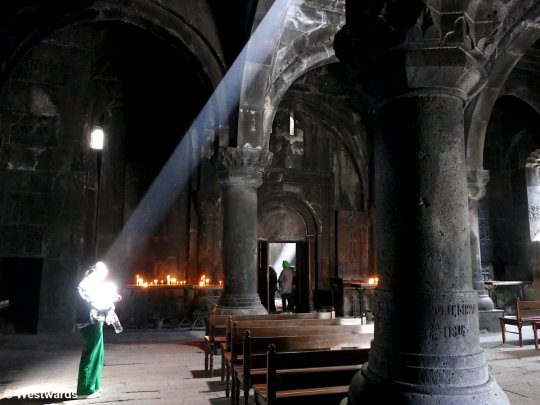

Tatev Monastery: Perched on the edge of a cliff, this fortress-like monastery reflects the grandeur and defensive nature of Dwarven architecture.



2. Traditional Clothing: Regal, Rich, and Embroidered
Tolkien’s Dwarves are often depicted in elaborate, layered garments with intricate patterns, a testament to their pride in craftsmanship. Armenian traditional clothing, especially royal and ceremonial attire, shares this emphasis on richness and detail. Armenian robes from different historical periods were made from fine fabrics, often embroidered with gold and adorned with jewels, echoing the regal appearance of Dwarven kings and warriors.
Examples:
Royal Armenian Attire: The robes of Armenian kings and nobles during the medieval period were crafted from rich fabrics and detailed embroidery. Visuals of King Gagik I or the attire from the Bagratid dynasty era would illustrate the parallels well.
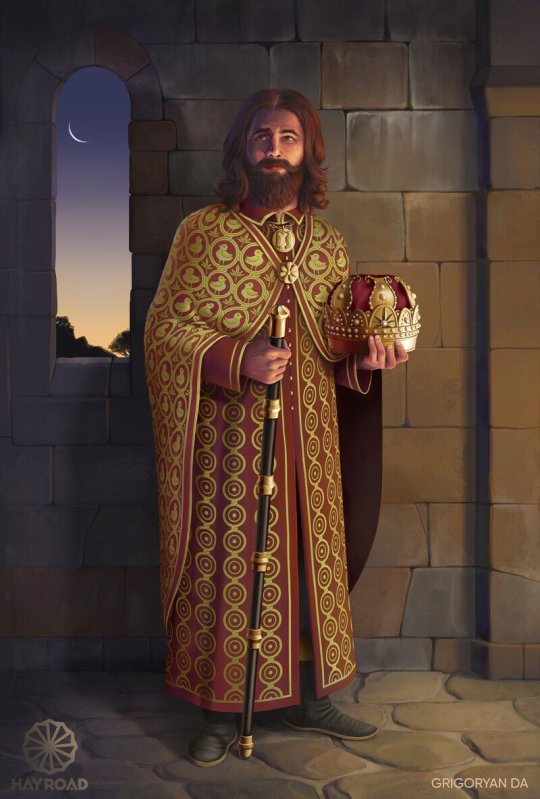
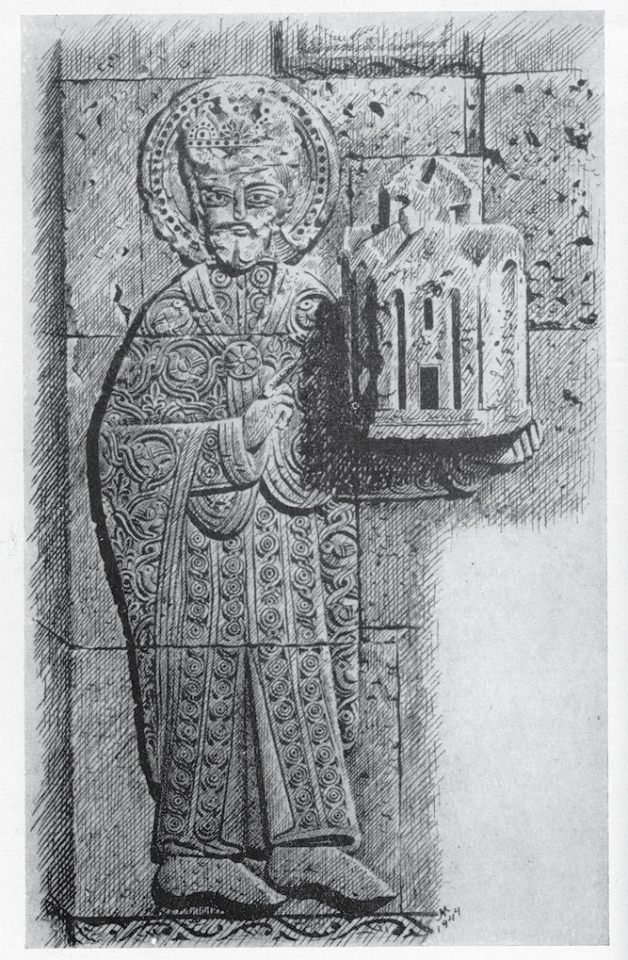
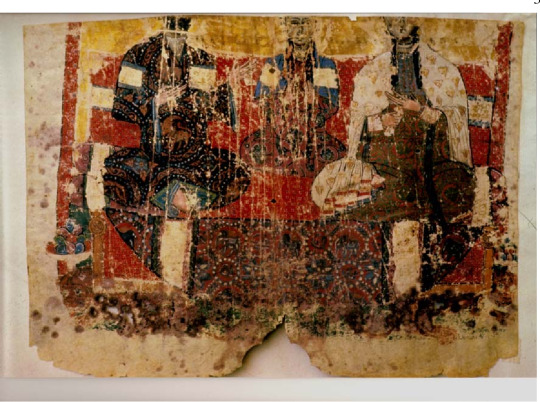
Women’s Embroidered Dresses: Traditional women’s dresses from regions like Syunik and Artsakh, adorned with intricate patterns and gold-thread embroidery, reflect a similar pride in craftsmanship seen in Dwarven culture.
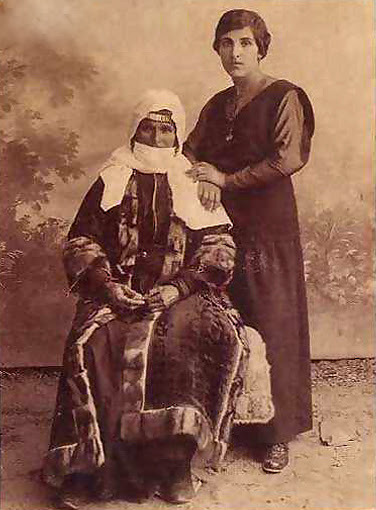
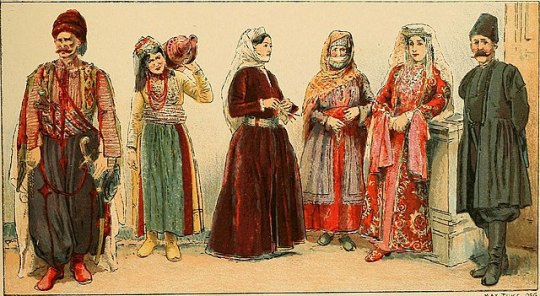
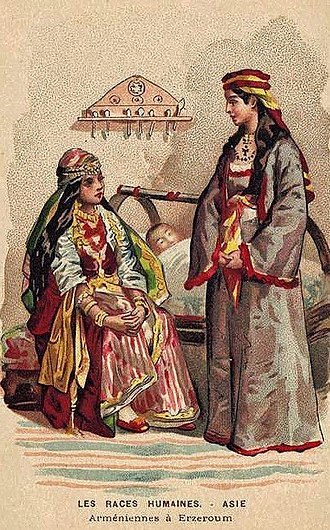
3. Craftsmanship: The Art of Metalwork and Jewelry
The Dwarves are famous for their skills as blacksmiths, miners, and jewelers, creating intricate items from precious metals. Armenia, with its long history of metallurgy, also boasts a rich tradition of metalwork and jewelry-making. Armenian craftsmen were known for producing exquisite silver and gold pieces, ranging from church crosses to ceremonial weaponry and jewelry.
Examples:
Armenian Crosses and Jewelry: The detailed filigree and gem-inlaid designs seen in Armenian religious artifacts show a high level of skill. These pieces could easily be imagined as treasures from the hoards of Erebor.
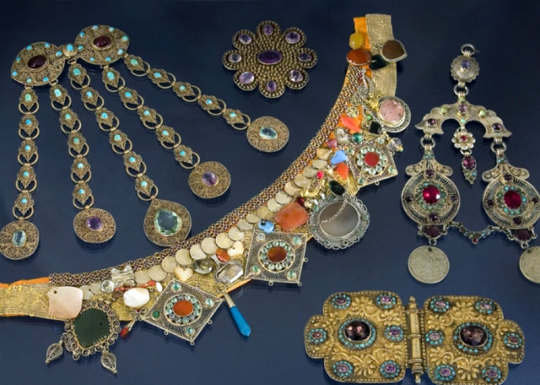
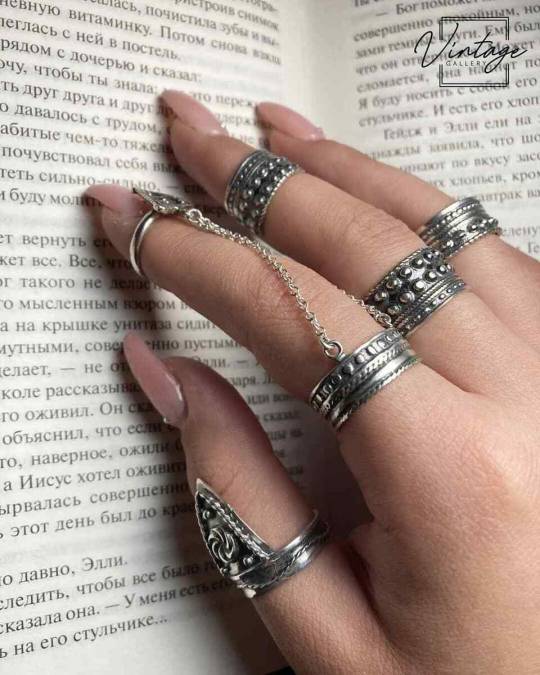

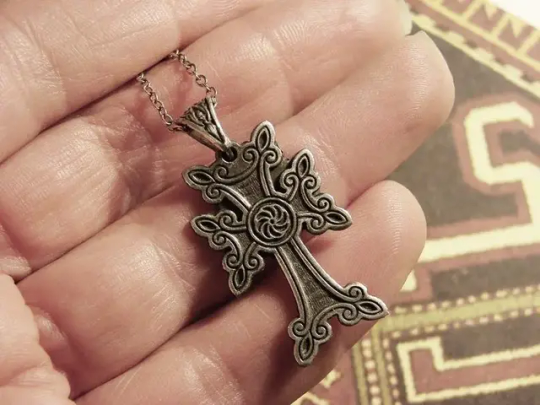
Ceremonial Swords and Armor: Historical Armenian weaponry, including richly adorned swords and shields, can also be found in museums. Their craftsmanship mirrors the care and pride of Dwarven smiths.
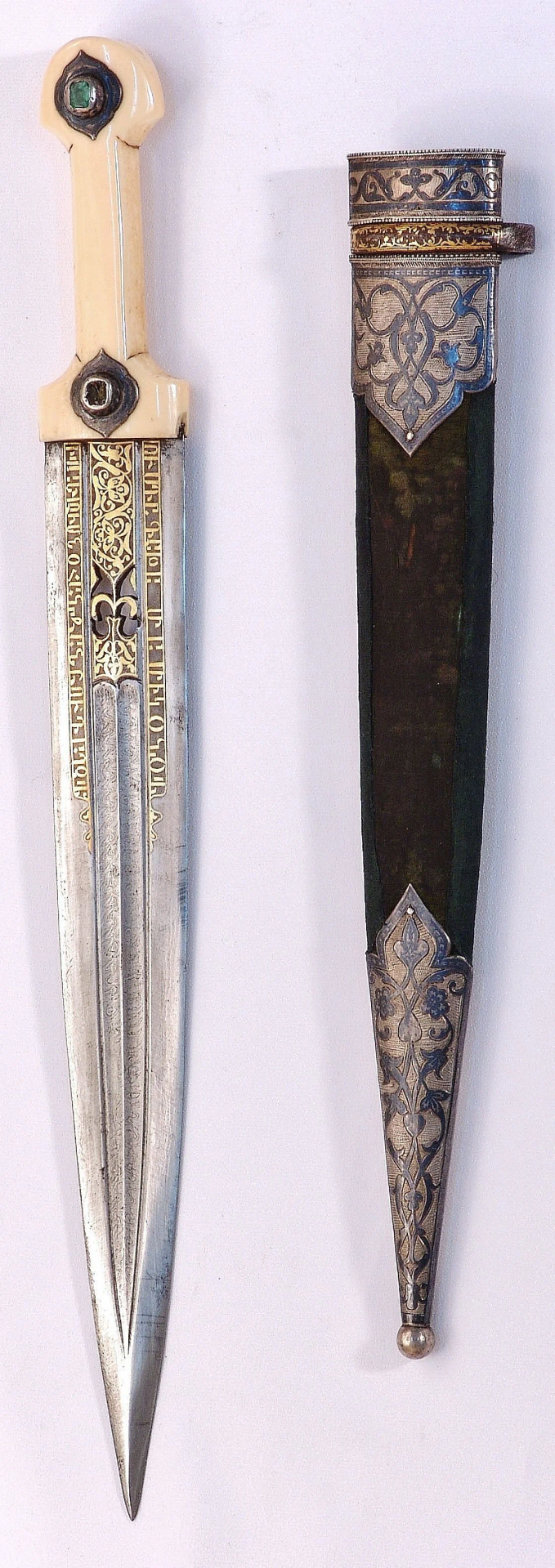

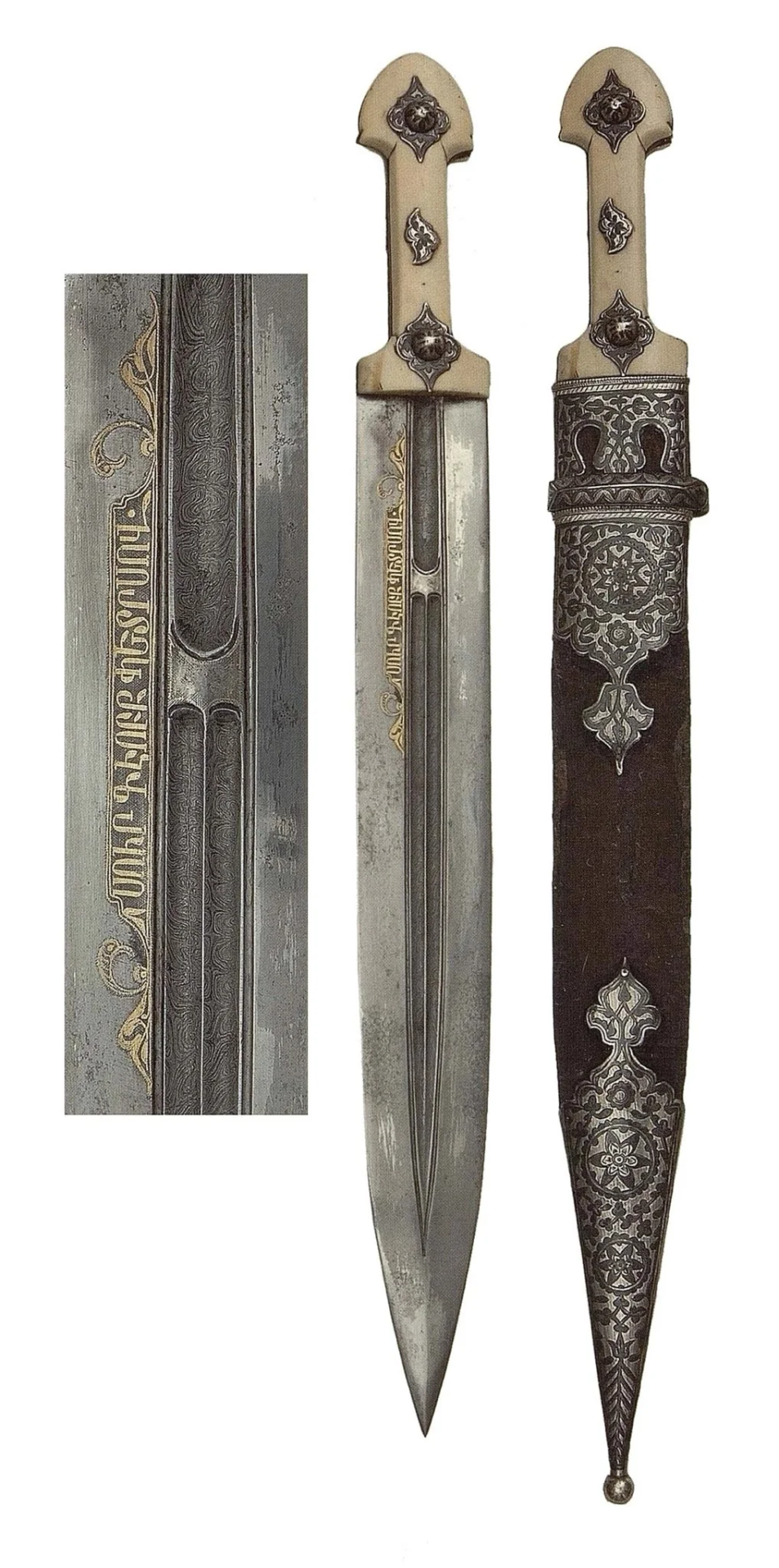
4. Resilience and Pride: A Shared Spirit of Survival
Both the Armenians and the Dwarves have a shared history of resilience and pride in their heritage. The Dwarves, displaced from their homeland of Erebor, strive to reclaim their lost kingdom, a narrative that echoes the Armenian struggle throughout history to preserve their culture and identity in the face of invasions and displacement.
Armenian history is marked by perseverance, whether through the maintenance of cultural traditions, language, or faith, even during periods of hardship. The Dwarves' determination to return to Erebor, despite the dangers, reflects a similar strength.
Examples:
Armenian Genocide Memorials: These monuments, while somber, speak to the resilience and enduring spirit of the Armenian people. They stand as a testament to survival, much like the return of the Dwarves to Erebor.


Mount Ararat: The iconic mountain, which has a deep connection to Armenian identity, is often depicted in art. It symbolizes endurance, much like the Lonely Mountain symbolizes hope for the Dwarves.



Conclusion
While there is no evidence that J.R.R. Tolkien based the Dwarves of Erebor on any specific real-world culture, the similarities between Dwarven and Armenian culture are striking. Both are defined by a love of stone, a tradition of intricate craftsmanship, and a deep-rooted pride in their heritage. These parallels offer a fascinating way to look at Tolkien's world.
113 notes
·
View notes
Note
hey!! i really love your posts and trust me when i say this but you're practically doing a work of charity by making all these synonym lists. 😩🫶
i was wondering if you could compile monument vocabulary. vocabulary to describe the intricate and exquisite designs inside historical buildings. tysm!
Some Historical Architecture & Interior Design Vocabulary
Acanthus Leaf - A leaf decoration often used on furniture, particularly on brackets and legs.
Acroterium - Originally an ornament on the roof corners of Greek temples. In classical furniture, similar ornaments applied to the top corners of secretaries, bookcases, highboys and other furniture.
Amorini - Cupid ornaments found on Italian Renaissance furniture.
Anthemion - A honeysuckle design from classical Greek decorative motifs. Term refers to any conventional flower or leaf design.
Antique - Could be anything ranging from a piece of furniture to art. The U.S. government considers any item over 100 years old to be an antique, whereas most collectors use 50 years as a benchmark.
Apothecary Chest - A low chest with small drawers that was originally used to store herbs for cooking and medicinal purposes.
Arabesque - Decorative scroll work or other intricate ornamentation consisting of foliage, vases, leaves and fruits, or fantastic human and animal figures.
Baroque - A highly ornate decorative style that originated in Italy in the 1600's. The style is characterized by irregular curves, twisted columns, elaborate scrolls and oversize moldings. The Italian equivalent of French "rococo".
Bibliotheque-Basse - A low cupboard with shelves for books. Doors are often of glass and sometimes fitted with grilles.
Bullate - Having the surface covered with irregular and slight elevations, giving a blistered appearance.
Cabriole leg - An ornamented furniture leg with a double curve structure.
Chevron - A 'zigzag' pattern characteristic of Romanesque decoration that is often carved around pillars, arches and doorways.
Chinoiserie - A European style of design that is meant to mimic elements of East Asian art.
Console table - A freestanding table, often found in the entryway of homes, that typically serves as a space for decorative elements.
Enfilade - A series of rooms that are connected via doorways that align with one another (commonplace in grand castles, like the Palace of Versailles, or even museums).
Etagere - A freestanding or hanging set of open shelves, designed to display trinkets or other decorative objects.
Gilding - A coating with a thin layer of gold or gold-like substance.
Klismos - Ancient Greek style of chair with saber shaped legs splayed at the front and back. The back legs continue up to support a shoulder-height curved back.
Laurelling - A decorative feature using the laurel leaf motif as its basis.
Lozenge - A diamond shaped decorative panel. Term comes from the Middle English word for stone.
Niche - A recess in a wall for displaying a sculpture or other accessory.
Ormulu - A metal resembling gold. Used as mounts and decorative effects on furniture.
Ovolo - A continuous ornament in the form of an egg which generally decorates the molding called the "quarter-round". Eggs are often separated from each other by pointed darts.
Passementerie - Fancy decorative trimmings such as tassels, tiebacks and ribbon.
Régence Style - This furniture style spanned from about 1715 to 1723, when France was ruled by a regent. This style of furniture design was a transition from massive straight lines to graceful curves.
Sconces - A type of light fixture that is fastened to a wall for support.
Swan-Neck Handle - A curved handle popular in the 1700's.
Trompe l’oeil - A technique used to trick the eye into thinking that something flat, like a wall, is actually three-dimensional. This is often achieved through photorealistic painting.
Victorian - An architectural style defined by highly ornamented design and grand, sweeping facades.
Wainscoting - A type of interior wall paneling that covers the lower portion of a wall.
"Traditional" Interior Design
When talking about traditional interior design, most are referencing a design style that originated in the 18th and 19th century throughout Europe. However, it’s worth noting that other cultures have their own versions of a traditional style that may not look the same as this more Western version.
Traditional Design Elements. Though not exhaustive, a traditional interior will often make use of the following elements:
Emphasis on symmetry and order
Traditional architectural details such wainscoting and crown molding
Classic decor elements such as chandeliers and bookcases
Neutral color schemes with pops of bold colors, often in jewel tones
Upholstery and textiles tend to be subtler (cotton, velvet, or wool, for example)
Furniture pieces with traditional silhouettes, though they’re often updated with modern elements or finishes
Layered window treatments and draperies; curtain valances aren’t used often
Classic patterns such as plaids, damask, or florals
Flooring tends to make use of darker wood
Sources: 1 2 3 4 ⚜ More: Notes & References ⚜ Word Lists
Previous posts that include some related words you might find useful:
Some Architecture Vocabulary
Some European Renaissance Art Vocabulary
Some Medieval Art & Architecture Vocabulary: Part 1
Some Medieval Art & Architecture Vocabulary: Part 2
Some Roman Art Vocabulary
Thanks so much for your kind words, you're really sweet! I tried to include a wide range of terminology since you didn't specify which time period you were looking for. Do go through the sources if I wasn't able to include here what you need in your writing. Hope this helps <3
#terminology#architecture#interior design#writing reference#writeblr#dark academia#spilled ink#literature#writers on tumblr#writing prompt#writing inspiration#history#writing ideas#creative writing#writing resources
79 notes
·
View notes
Text
There’s an agenda against women.
We are living in a world where powerful figures manipulate our reality, dictating what is acceptable or unacceptable according to their twisted standards. While they go by many different names, I often refer to them as "the powers that be." They are male supremacists who abhor the very existence of women and aim to obliterate our rights.
Sisters, it is crucial that you understand the depth of this misogyny—it is not merely a byproduct of society but a deliberate orchestration by these sinister forces. They control the entertainment industry and have infiltrated our government; agencies like the CIA and FBI are in their service. They are the puppet masters funding red pill channels and the proliferation of pornography, using actors and puppets like Candace Owens, Andrew Tate, and Brett Cooper to spew their venomous propaganda and to shape public opinion on women's social issues.
Take a moment to reflect: the most popular celebrities, politicians, and social media personalities are just pawns in an elaborate game, playing roles crafted far in advance. The saying "All the world's a stage" has never rung truer. This is all meticulously planned, all designed to keep us controlled and complacent.
But it’s not just about the overt manipulation—we are also subjected to relentless psychological warfare. Music, a powerful tool of cognitive control, is weaponized against us. It can hypnotize our minds, lull us into emotional submission, and shift our focus away from the truth. Here are a few ways in which music achieves this
1. Rhythmic Patterns - The repetitive nature of music can induce a trance-like state, allowing listeners to enter a focused or meditative mindset. The rhythm can synchronize with our body’s natural rhythms, promoting relaxation.
2. Melodic Structures - Certain melodies can evoke powerful emotions and memories, guiding listeners into altered states of consciousness. This emotional resonance can facilitate deep insight or reflection.
3. Brainwave Entrainment - Music can influence brainwave patterns through specific frequencies. For example, certain types of music can promote alpha or theta brainwaves, which are associated with relaxation and increased creativity.
4. Guided Imagery - When combined with lyrical content or specific themes, music can enhance guided imagery techniques, further deepening the hypnotic experience.
Here are some good videos explaining it -
https://youtu.be/rTJVWCUpJEI?si=rSbf1PaL91Xu966I
youtube
And https://youtu.be/QkHOXuY8C58?si=PbnGqfFmSBenInKE
youtube
In summary, music's unique combination of rhythm, melody, and emotional depth allows it to act as a powerful catalyst for trance-like states, making it an effective form of hypnosis.
Why does this matter? Because every day, countless women are being brainwashed by celebrity singers who encourage them to prioritize male pleasure above their own. Take SZA's song "Snooze," for instance. When you dive into the lyrics, it becomes painfully clear: this song glorifies male worship and being complete doormats for Men.
Imagine the impact of continuously absorbing these messages—how they seep into our minds and alter our actions, making us believe that our worth is tied to someone else's satisfaction. This is not just entertainment; it's a dangerous manipulation of our identity and self-worth!
I urge you—spare no time! Study psychological warfare and arm yourself with knowledge. Approach the world with a critical mindset. Question everything, challenge the narratives, and never accept what is presented at face value.
#feminism#radical feminists please interact#radical feminst#womens rights#feminist#radical feminist safe#radical feminists please touch#radical feminists do interact#radical feminist community#radical feminism#radical feminists do touch
30 notes
·
View notes
Note
Do you have any posts where you elaborate on this?
"My thesis is that to understand storytelling, you want to understand root issues and classes of solutions ... There are a lot of writing problems that are parallel to each other, and there are a lot of structural elements that are mirrors of each other, so why not try to put it all together that way?"
I don't think I do, so I'll do that briefly here.
Here's the thesis: I have a strong suspicion that there are only a handful of elemental aspects of storytelling that all have their root in human psychology. The easiest ones to name are "engagement", "investment", and "surprise", but once we start looking at these things, I think we can start to understand how "different" writing problems are actually the same writing problem in disguise. Knowing this, we can start listing out solutions to those problems, and solutions that work on one type of problem can also work on a different type.
The brain is good at pattern-recognition and pattern-completion. When we read fiction, we're always trying to complete the patterns, consciously or otherwise. This isn't some LLM-style "predict next token", it's a matter of having an internal model of the characters, the setting, the narrative, etc. But humans don't like the ability to perfectly predict things, at least usually, they like there to be some measure of surprise.
So this is one fundamental aspects of fiction: the tension between predictability and surprise. There's a lot of writing advice that flows from this, and a lot of tools of writing come from here: foreshadowing, plot twists, punchlines, the effective use of tropes. When something isn't working, it's often on the predictability-surprise axis, and a lot of the tools there boil down to "make this more predictable" or "make this more surprising". And this extends from the micro (individual sentences) to the macro (the whole plot). It's why we write cliffhangers, it's how we manage suspense, it's how we structure a paragraph for maximum impact. This is, in part, where the fundamental concept of "tension" from from.
And I think there are a few things like that, relatively atomic concepts that we want to look at, that a good book on writing would interrogate and give advice for, with the understanding that these things overlap with each other.
I don't have time to write a whole book (or 4-5 longish blog posts), and wouldn't trust myself to actually nail it, but here are some of the things that I think ought to be in there:
Conflict and cognitive dissonance, jarring the brain with opposing statements that grind together like mismatched gears, includes juxtaposition
Unfoldingness and picture-painting, forcing the reader to use cognitive load to render the world through words, character actions, descriptions, etc. Includes most of "show, don't tell" and also explains why that's sometimes not good advice.
Emotional resonance, how to create and maintain empathy with a character and activate mirror neurons. Includes both empathy cultivation and empathy discharge.
Pacing and rhythm, and making sure you don't hit the same note too many times, allow the brain to rest, use all parts of the brain, etc.
Meaning and connection-building, how to weave a theme, how to say something, how to have disparate elements come together, because people love when disparate elements come together and the parts become a whole
And so my problem with a book like Save the Cat!, where I think this ask comes from, is that it gives a bunch of very narrow advice, and you walk away with an understanding that yeah, you need a moment early on that establishes this character as someone to root for, and then gives a bunch of weird contradictory examples of what that means, and some of those examples are actually tying in other bits of fundamentals, like surprise, having something unfold in the reader's head, empathy, etc.
I'm actually going to give one example of what I mean, directly from the book, though I had packed it away on my shelf never to be seen again:
Save the what? I call it the "Save the Cat" scene. They don't put it into movies anymore. And it's basic. It's the scene where we meet the hero and the hero does something — like saving a cat — that defines who he is and makes us, the audience, like him. In the thriller, Sea of Love, Al Pacino is a cop. Scene One finds him in the middle of a sting operation. Parole violators have been lured by the promise of meeting the N.Y. Yankees, but when they arrive it's Al and his cop buddies waiting to bust them. So Al's "cool." (He's got a cool idea for a sting anyway.) But on his way out he also does something nice. Al spots another lawbreaker, who's brought his son, coming late to the sting. Seeing the Dad with his kid, Al flashes his badge at the man who nods in understanding and exits quick. Al lets this guy off the hook because he has his young son with him. And just so you know Al hasn't gone totally soft, he also gets to say a cool line to the crook: "Catch you later..." Well, I don't know about you, but I like Al. I'll go anywhere he takes me now and you know what else? I'll be rooting to see him win. All based on a two second interaction between Al and a Dad with his baseball-fan kid.
And this, to me, is only half a diagnosis of what that scene is doing. It's a good scene, but there's a setup and payoff within it, an inherent tension to whether Al Pacino is going to cuff this guy, it's prediction-surprise stuff, it's "show, don't tell". There's a lot going on with it, and if you don't come at it like that, if you just say to people "oh, you need to give us someone to root for" they're going to do boring things like having the hero literally save a cat.
And then this also doesn't help them later on when they have to write other scenes!
I hope this answers your question, possibly I will find the will to write an essay series later on, but this is at least some fraction of my (current) view on craft.
48 notes
·
View notes
Text
Every time i play modded minecraft on a server with friends i make some sort of inexplicable construct on the server. I made a solid black obelisk that reaches world height and can be seen from up to 2000 blocks away with the distant horizons mod. I made a menger sponge out of water near my friends house. I just cant stop building menger sponges.
This made me realize that *I* am the anomalous player that joins peoples singleplayer worlds in minecraft analog horror series and builds structures no normal player would ever create without elaborating once, just leaving a strange object in someones world where it could be easily found.
I need to start making things that trigger the human fight or flight system even more. I need to build a maze of identical rooms. I need to make a lattice of hollow cubes that dont seem to have any sort of pattern to their placement. I need to make a few chunks entirely empty underneath the thin layer of grass as the surface.
I have to fly closer to the sun
89 notes
·
View notes
Text
I think that conlangs are a very useful way of seeing how the biases of linguistic theory manifest when applied by amateurs (and occasionally professionals). When linguists are promoting their theories they often like to make the claim that they can account for all phenomena, even if there's some clear foci for their actual attention. So the outputs of conlanging as a hobby make an interesting case study of the application of these theories, because the theories bias the kinds of structures conlangers actually end up including in their languages.
Specifically, it seems clear to me that internet-based conlangers especially show the clear effects of the assumptions made by what Jim Blevins terms the 'Post-Bloomfieldian Structuralism' that has been the default mode of linguistic analysis and theorising for decades now.
In phonology this manifests with the focus on phonemes and phoneme inventories, partly at the expense of phonotactics but especially phonetics. The result of this is a flattening of phonological structure; each of these phonemes ends up being tret as a unit of equal status within the system, with any kinds of distributional asymmetries between phones only included as an afterthought by means of some phonological rules.
It's why you get channels like Conlang Critic on Youtube pronouncing each of the individual phonemes of a conlang like that tells you what you need to know about the actual sound of a language. I rarely see any kind of restricted distribution or positional neutralisation of the kind seen in e.g. the Mandarin Chinese palatal series.
Morphology is where this kind of fixation most strongly manifests, because morphemes are an even worse fit for the morphological phenomena of natural languages than phonemes are for phonological phenomena. In effect what this leads to is the same kind of atomisation that we see with phonology; all 'morphemes' are tret as having equal status in the system, so you end up with a morphological system that just comes off as a phonologically more bound version of the syntax (but with more lists).
For instance, when was the last time you saw a conlang that made use of the concept of 'stem'? Or which showed syncretism between cells in paradigms? Have you ever seen a conlang that made use of a morphological pattern that could be considered 'morphomic'? I could go on.
None of these are somehow 'strange' or 'exotic' phenomena; they're found to some extent in pretty much all Romance languages, perhaps most elaborately in French, and much of this also crops up all over Germanic too.
I think there might be some of this tendency in the lexicon too; homophony and polysemy seem oddly infrequent in conlangs, even though they're ubiquitous in natlangs (English I/eye and you/ewe are particularly neat for showing that not even pronouns are safe from this). I've not got as much to say on this as I don't tend to pay so much attention to conlang lexicons, so I could be wrong on this one.
The actual relationship of conlangs to linguistic theory is messy, and I'm acutely aware that this is largely anecdotal. Indeed, plenty of experienced conlangers make a point of highlighting at least some of these issues, and there's definitely conlangs that avoid many of these issues (Siwa/Siųa is a good one for this, you'll have to dig through the thread to get to the actual grammar). My intent here is mainly to get some discussions going, because the real question is actually 'how do we get the conlang community to understand these phenomena and make use of them at the kinds of rates that we actually find in natural languages (which is pretty much any language with morphology, with maybe a couple of exceptions)?'
71 notes
·
View notes
Text
also the last post made me realize i haven't shared the bulk of my arlathan cultural headcanons
i actually have a doc with a big list of things which i'll include, but first i will specify that, at its heart, i view arlathan as a artificially organic structure. much like the evanuris!
they are immortal, as are the elvhen. death does not touch them. very possibly disease does not, either, and certainly not rot. their bodies are built, designed, artificial yet entirely real, spirits now with blood pumping in their veins, with a heartbeat, with breath, with the feeling of cold or warm air on their skin...
because of all this, i think there is a cultural fascination with the organic, the biological, and those particular parts of it that they have no access to - death, disease, and rot. and very importantly, i see none of this as being grim or disturbing, either to the evanuris or the elvhen. it might eventually become disturbing to the elvhen as slavery begins or escalates, as slaves are "spent" in the creation of things, but it is not something that immortal beings have an inherent or instinctual aversion to. there is instead a deep academic fascination with anatomy, with death, with biology, with organic compositions
(btw, as with all my headcanon stuff, u have full permission to take this and run with it without crediting me!!!! u don't even NEED permission i don't feel, but i am explicitly giving it)
also i'm not a big pinterest user in general but working through my ideas for arlathan, it did help a lot. just bugs me that there is sm inevitable theft on that site... :/ but, nonetheless, i will include the link to my pinterest board for arlathan, with the BIG IMPORTANT NOTE!!! that a lot of it is explicitly anatomical, some with violent connotations, and that it might be disturbing. with that in mind... link
low pools with grand columns rising from them
perfectly round ponds, outlined with dense and perfect planting, always in bloom, an artifice of nature
winding staircases which provide glorious views
vines winding through railings, but never dropping leaves or dead flowers
buildings arranged to take advantage of light, where certain times of day create elaborate patterns of filtered light
surreal beauty
colors like an oil slick
curves everywhere, the predominant shape is of curves and circles
everything is so high... tall towers, and great, open structures where u can stare up and see all the floors above
a fascination with death, disease, rot - these things that do not touch the evanuris or the elvhen
skeletal depictions
huge, beautiful murals that show skeletons and rot but are surrounded by this almost ethereal beauty, all gold and gilt and vivid unreal colors that flow together so that every single piece is a piece of art unto itself
an entire building could be a skeleton. a ribcage making up the main room, its arms supporting each side, almost cradling the structure
18 notes
·
View notes